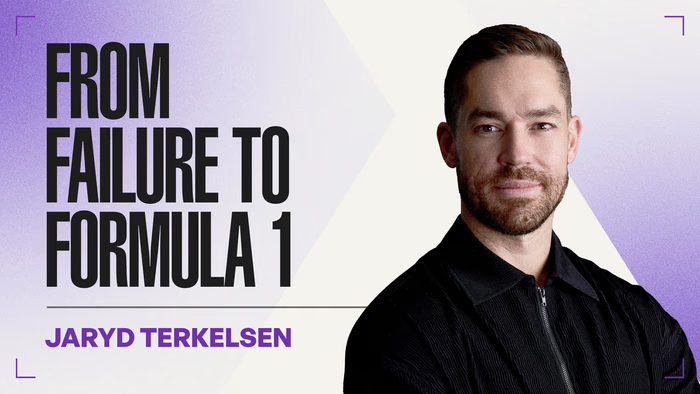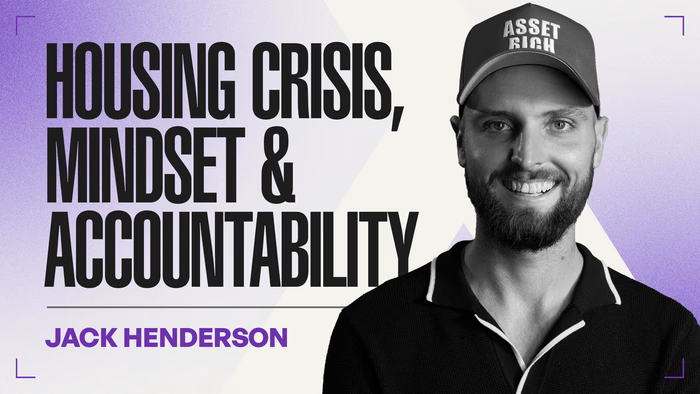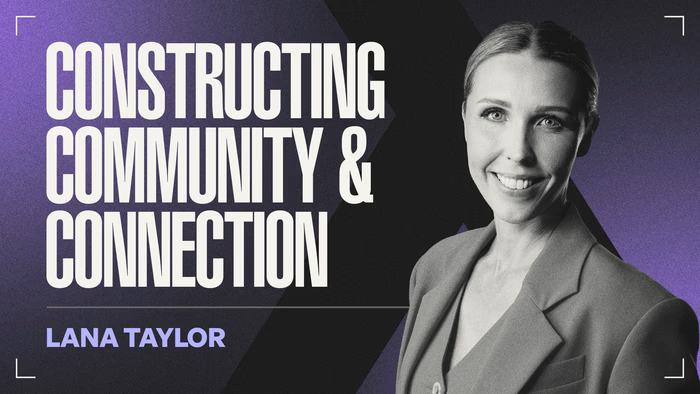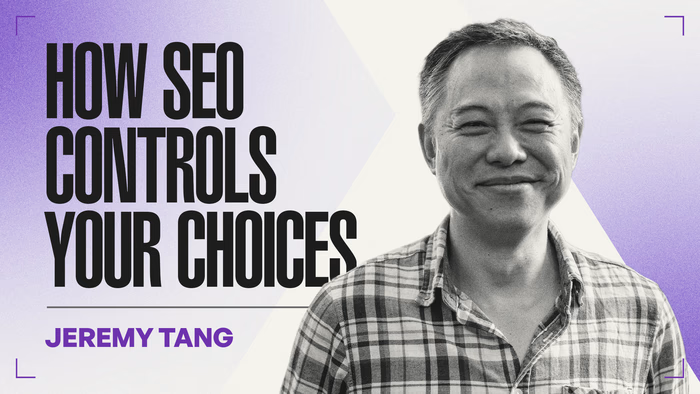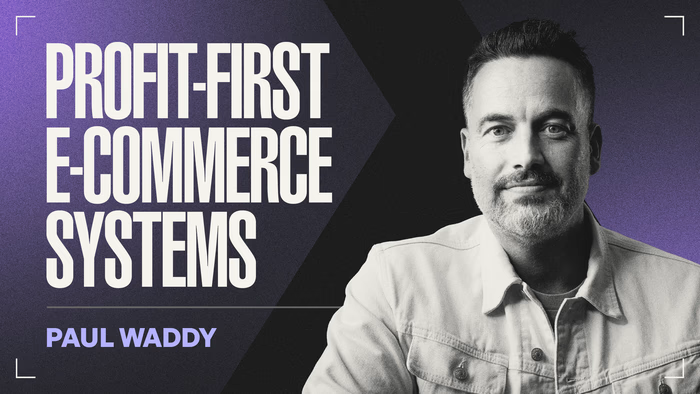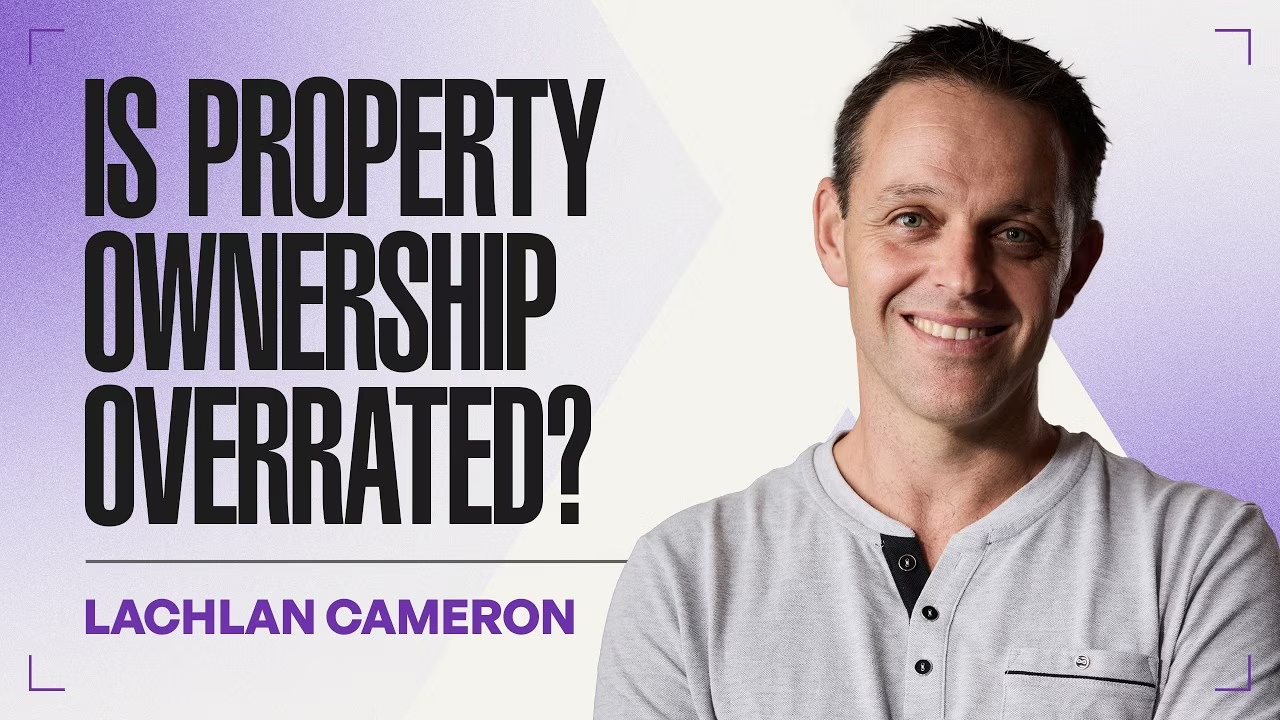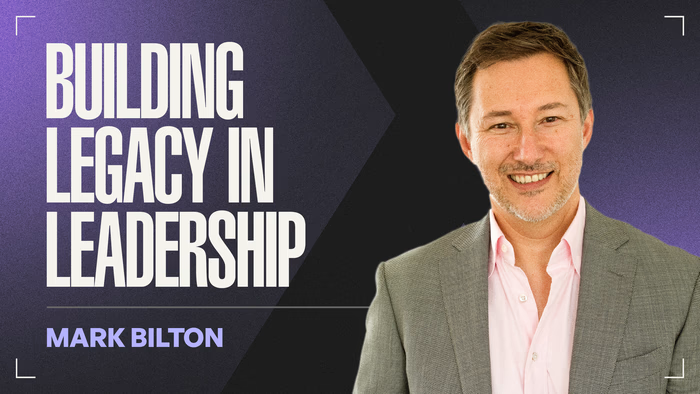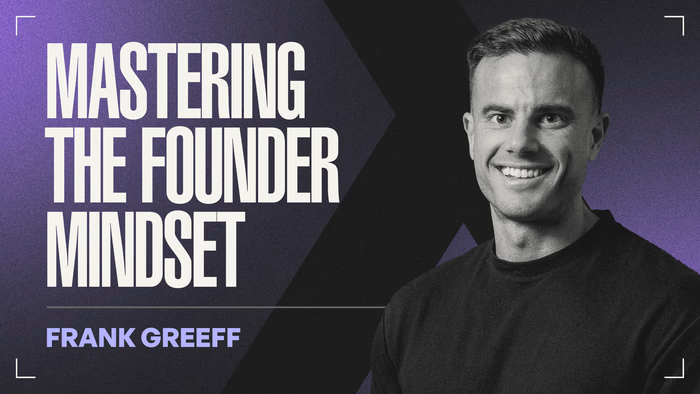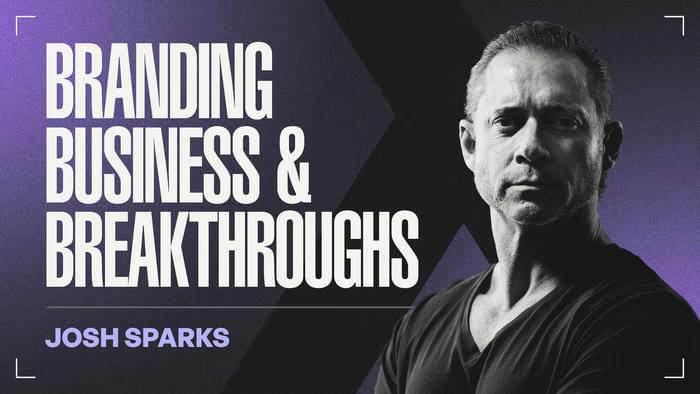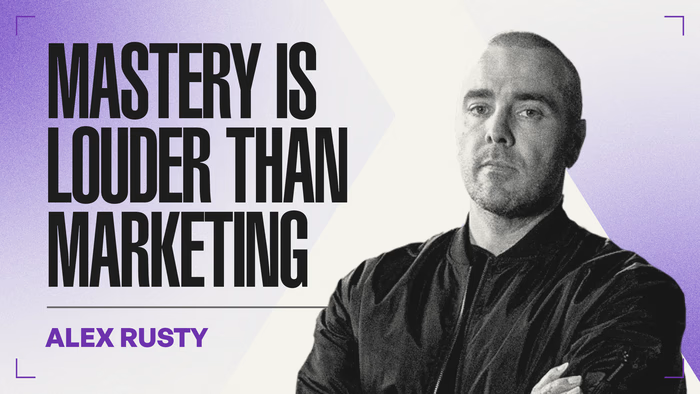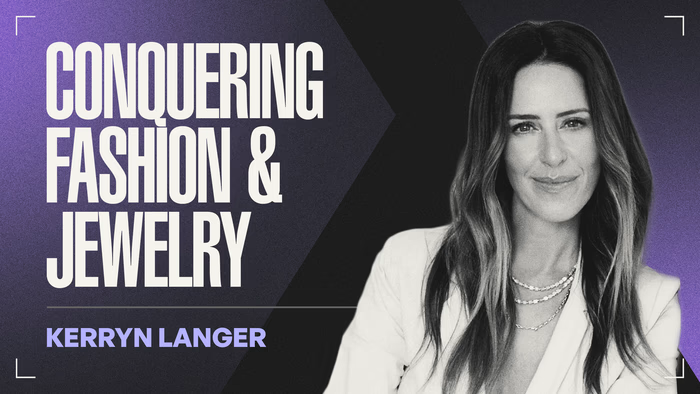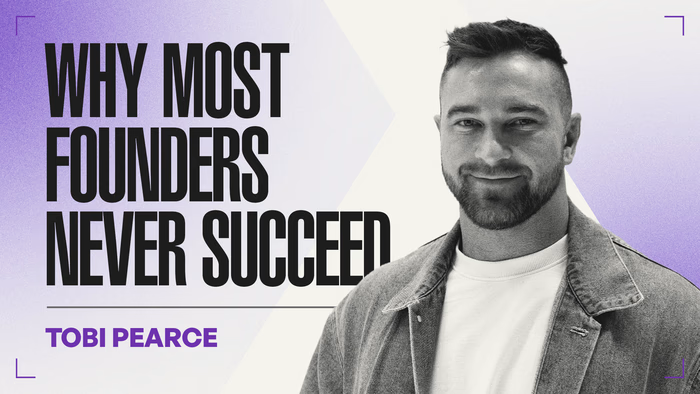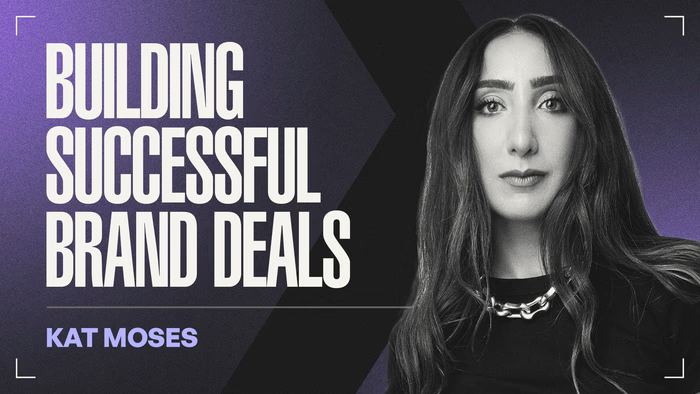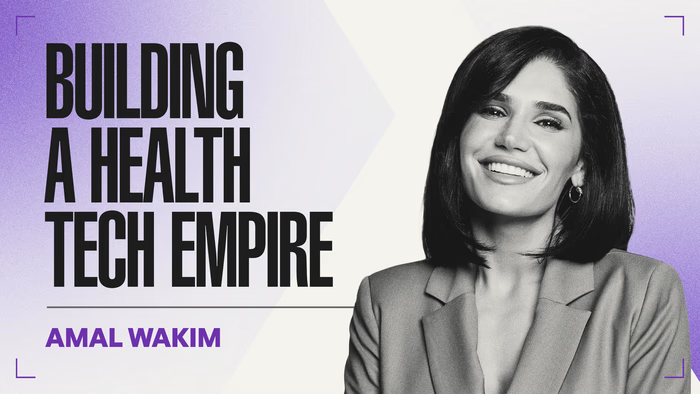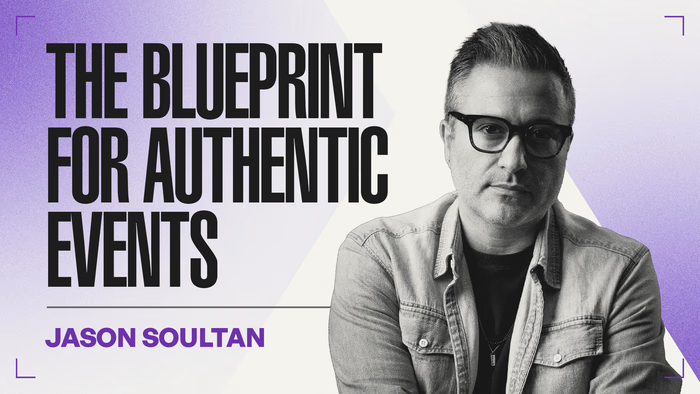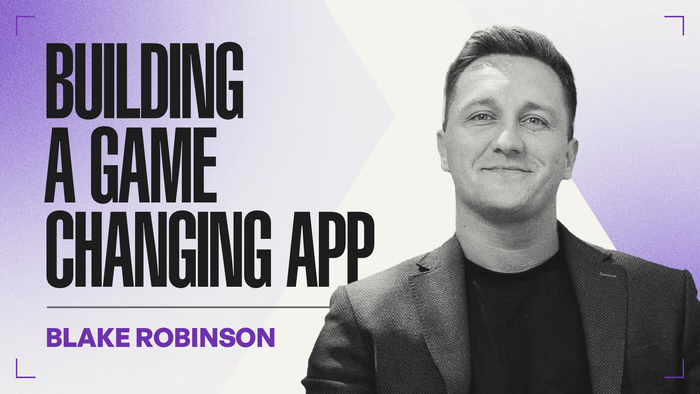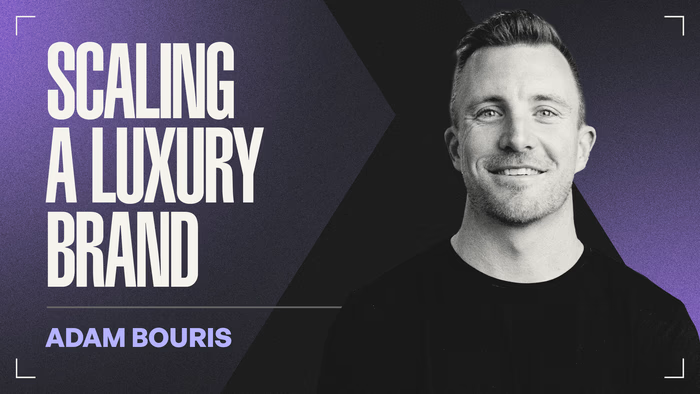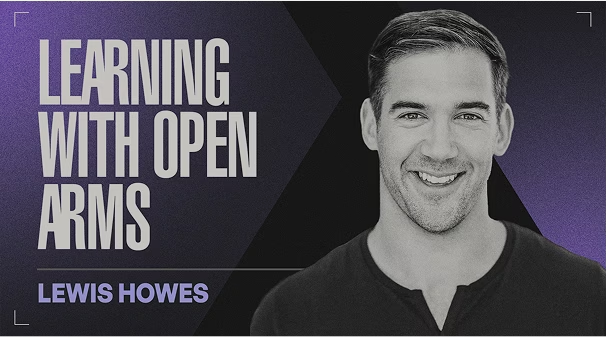


TLDR
Summary
Marty Hungerford, Chief Innovation Officer and founding partner at BRX, argues that AI is causing a massive evolution, not destruction, of the creative industry. He emphasizes that AI is a powerful tool that democratizes creativity, allowing individuals with great taste, storytelling skills, and strategic thinking to execute complex ideas without large production barriers. Hungerford believes the future belongs to the "selector and editor," where human aptitude for articulating and curating ideas will be the key competitive advantage. He warns that traditional agencies are constrained by obsolete structures (like the head-hours model) and risk failure by resisting this change. He urges businesses to immediately change their premise regarding AI, conduct a full job audit using the ICE methodology (Impact, Confidence, Effort) to prioritize automation, and invest in creative talent that is enthusiastic about embracing new technology. Hungerford dismisses the idea of "soulless" AI work, stating that modern advertising is already artificial and AI will simply make execution faster, better, and cheaper.
Highlights
- Democratization of Creativity: AI is merely a tool that moves the execution barrier, enabling individuals (like a producer on a laptop) to bring complex creative ideas to life instantly.
- The Future Human Role: Success will be determined by the human elements of personal taste, storytelling, and strategic thinking—shifting the role from mere production to "selector and editor."
- Agency Disruption: The head-hours model and inefficient internal systems are "handcuffing" old agencies, creating a massive opportunity for agile, independent firms to steal business through AI-driven efficiency.
- Practical AI Strategy (ICE): Businesses must immediately audit every internal job and process and use the Impact, Confidence, and Effort (ICE) methodology to score and prioritize which changes to implement first.
- Talent Investment: BRX prioritizes hiring individuals based on their innate creative aptitude (e.g., background in design or art) and their enthusiasm for playing with new technology, rather than purely technical skills.
- The "Soul" of Creation: Hungerford rejects the notion that AI-generated work is "soulless," arguing that the distinction between human and machine creation is already blurred and that removing economic barriers will make the world more creative.
- Mantra: His guiding principle is to "Work hard and be nice to people," emphasizing cooperation and sharing success.
Transcript
00:00:00 - 00:01:00
The cat is kind of out of the bag with AI. The world is about to change in a fundamental way. So you can be part of that change or resist it. Like 50% of all images on Meta right now are AI. 50% 50% of every image posted to Meta right now is AI. Marty Hungerford is pioneering the use of AI to transform creativity, boost efficiency, and build the agency model of the future. He's the chief innovation officer and founding partner at BRX. And with over 25 years of experience, Marty has led digital and strategy teams for
00:00:30 - 00:01:21
brands like Optus, Medibank, and Australia Post. I think the biggest encouragement, if you don't do it, you're probably not going to have a job because there will be this young kids who come in, don't give a about the rules, and they're going to steal as much business as they can. And that's the way the world works. Why are creatives a protected species? No, honestly, like, why does no one shed a tear for developers, but they shed a tear for creatives? Why do you think that is?
00:00:56 - 00:01:51
I think if you look at any of the tools that are out there, they are useless without a person. What is going to happen though is that humans are going to become more selectors and editors and your personal taste is what's going to be really important. I don't accept that it's going to be any less soulless. I don't know what this says. We might have to cut this one out as well. Let's see. But um this episode is brought to you by Wix Studio. I would like to welcome my friend Marty
00:01:28 - 00:02:28
to the agency podcast. Thank you. Welcome. So in your opinion, what defines creativity? Is it the tool itself or is it the person who's using the tool? It is definitely the person. I think if you look at any of the tools that are out there, they are useless without a person. And I think any anyone that has tried to end to end automate creative without a human in the loop, you're not going to get great stuff. I think what is going to happen though is that humans are going to become more selectors and
00:01:58 - 00:03:00
editors and your personal taste is what's going to be really important. So you'll be able to create anything, right? And the great thing about that is it's going to be democratized. So the one of the real challenges at the moment or prior to AI was you could have a great idea but you'd have to get all these other people on board with that idea for it to ever exist. So now what's happens is that anyone who's got a great idea can go and make what's in their head. And a great
00:02:28 - 00:03:29
analogy I think is Billy Isish. So if you had have gone back 20 years pre pre the home computer and pre having a laptop that had all of these incredible sound things on Billy Alish probably wouldn't have come to light but she could go and make this music in her bedroom that was completely unique and completely different to what was out there and craft that and put that out there and the whole world could see it. That is true now of film. I think it's true now going to be true in advertising
00:02:59 - 00:03:58
that that you can take very small teams and do incredible work without having all of these layers of of people in the way. I don't know if you've ever seen the Mel Brooks talking about studios. So, he used to have the studio execs come in and they'd say, "Look, you can't do a fart joke in this in this, you know, like these iconic fart jokes that made that that that made um you know, his version of the Western." and he'd quietly listen and he'd kind of write down and yep take very careful notes and
00:03:28 - 00:04:29
then they the studio exec would walk out and he would walk out of the room and he'd rip it up and throw it in the bin and just ignore all of it. That takes a very special strong person, right, to to do that. I think now that's removed. There's no studio exec walking in. You can sit there and you can prompt what you want to make and it will become down to your taste, your ideas. And I think that's really incredible from a what stories will we see that we wouldn't have seen. I mean, there's like a to be
00:03:58 - 00:04:52
a director and survive in Hollywood or or in the modern industry, you've got to go through a crucible. You've got to have this incredible and you know, I guess backbone to get through all of that. But then what stories does that mean actually come out? Perhaps someone who doesn't have that might have a really unique perspective. And if they can sit in their room quietly and and create an amazing movie that's in their head, maybe we'll see something, you know, completely fresh and refreshing
00:04:26 - 00:05:22
and interesting. Have you seen a rise of that as of recent? I think you're starting to see some pretty funny and interesting content posted online now that's like really different perspective stuff. Have I seen a great movie come out? I I'm not sure if the tools are quite there yet. I mean, V3 only just launched. We've had a whole team working on it. We've probably spent 100 hours on it in the It only came out a couple of weeks ago. Just really trying to understand character
00:04:53 - 00:05:55
consistency, scene, the ability to transport through space and time like a character, accent changing, how consistent can you keep things like that, the level of performance, uh, emotion that you can embed, so whether someone's happy, sad, whatever. And it's wild. It's really, really wild. If you think about like how Disney over the ages has, you know, crafted film, I was watching a documentary about some of the first um Mickey Mouse films that were produced and just the thousands of
00:05:24 - 00:06:30
technical hours that went into the illustrations and the drawings and stacking them together. It was just this incredibly expensive, tedious, tumultuous process. And you're saying now with like tools like V3, you can essentially imagine something create a a dialogue between you and this AI mechanism and kind of actualize anything that you can imagine. Yeah. And then it comes down to to great taste, right? And I I would say there's still an expertise there. So, one thing we found with say
00:05:57 - 00:06:51
photography is that if you're if you're generating AI images and we get someone that's got great photography experience and they understand what lens to use, what lighting to use, the composition, they can describe it, they've got the lexicon to do that, they will do amazing imagery. But if you give it to say an account manager with no experience and they're the the the account manager is great at doing their job but they're not particularly creative and you ask them to generate the same image. They'll
00:06:24 - 00:07:33
generate an image but it's not going to be evoke the sense of of emotion that you want or the style that you want. So, I guess I'm kind of like changing my answer a little there because you're if you've got great creative experience, great creative taste and a great skill set, AI is really a superpower. Okay. And you're saying that, you know, there's a a stitching together of these two kind of industries because if you think about maybe the history of technology, um so much has changed even
00:06:58 - 00:08:08
in the last how would you say like 60 70 years. So, if we're thinking about maybe winding back the clock a little bit here for a moment, because I think sometimes history can be a a great teacher of the future and if we go back, you know, if we think about the creative and what companies were doing in the 50s through to today, how could you, I guess, walk us through how creativity might have evolved since the 50s? Uh, I'm not that old. Well, you look great, man. But I mean well traditionally like the big
00:07:34 - 00:08:35
breakthrough was putting art directors and creatives together because prior to that you had an art department and a copywriting department and they would do the work separately and this was about like 40s50s60s this was would have been there's a moment in the 50s well there's a moment in that famous VW think small ad right that that was kind of pre that all the car ads were kind of the same right like a front three/arter shot of the car family around the car traditional line there. There was suddenly a big
00:08:04 - 00:08:52
conceptual leap and that happened when when you started getting art directors and copyriters and putting them together. So they were manufacturing the ad together or imagining the ad together. So prior to that it was very compartmentalized completely. So there would be a copywriter writing the lines that would come through to the art director who would make the image put it in and out would go. It sounds crazy to think about those two people not meeting and having a conversation about how to market
00:08:28 - 00:09:13
together. So, and there's a thinking, and I think the thinking is fundamentally wrong, that with AI, you'll add like a technologist into the mix, but I think that's the wrong way to think. I think the right way to think is that your art director and copyright are going to be using AI because there's a big debate right now, and it's about like, okay, are the creatives the ones learning how to use technology or are the techno heads the ones learning how to be creative with the technology?
00:08:51 - 00:09:43
I think that the democratization of these tools will mean that there's no technology involved whatsoever. Wow. I mean, if you're already thinking about like how easily you can prompt something. So, then it comes down to taste and and and that's only going to get easier, right? I mean, look at the look at like the UX on your phone. Look at the experience of a Tesla driving a Tesla compared to driving a another car. It's just going to get easier and easier and easier to use these tools.
00:09:17 - 00:10:13
And then it becomes really starts coming down to taste and storytelling and and what your ideas are. So what we're experiencing right now, for example, with the prompts and the inputs and the dialogue, you know, this might transit into something more communicative where you're sitting across from a screen and you're just like unpacking what you're thinking. Yeah, I think that's already like Yeah. Right. Yeah. I mean there's some technical skills still involved in I guess
00:09:44 - 00:10:50
learning the tools and and again a really good tool say like midjourney for imagery has got that fine level of control right because you've got what camera type what film stock what lighting what other references that that you want to do so pulling all that together still requires a technical kind of knowledge I guess but I don't really see it a technical barrier to that. Okay. So the the technical barrier is coming down. So if you look at you look at our we hired the first creative prompt engineer
00:10:18 - 00:11:32
in Australia maybe in the world in in in our agency. And the reason I selected her was she had no real technical background at all. Her background was uh she'd been an art director before that, a designer before that. She'd done uh art school. She'd done jewelry making, oil painting, um, photography. So, I I hired her because her range of mediums that she'd worked with and skills that that she had, I knew would translate well. So, she's got the lexicon to go, I I know this style of artist and I and
00:10:55 - 00:11:57
like um, you know, or this style of art that I want to recreate like like what are the different forms of wood cutting? like I don't know like but if you know that and you want to do a wood cutting piece you know an image that looks like it's been cut from wood then and Bella's been very good at picking that up. So she has this innate creative knack or talent or taste if you will and and the lexicon to describe it and the yeah the tools on how to how to take it from her mind and share it with
00:11:27 - 00:12:27
you. Yeah. And then obviously we sent her on a bunch of training courses and and really importantly gave her hours and hours and hours and hours to use these different tools. And now I think what I'm noticing is as the new tools come out, she's very fast at picking them up because she's got his knack for doing that. Business owners, if you're stuck using one platform for every project, you're probably stuck in a growth bottleneck. More clients means more hires, which just adds noise and cuts into profits.
00:11:56 - 00:13:03
To break the loop, you need flexible tools that don't stretch your resources. Wix Studio is a smart addition to your business toolkit. Intuitive by design, your team can quickly master the platform and focus on the work that matters the most. Then keep up the momentum with a built-in management tool. a unified dashboard, reusable assets, and a Figma plug-in that turns static design into launch ready websites. With robust native business solutions like bookings, e-commerce, and events, you can take any project at any
00:12:29 - 00:13:34
scale without the added cost of third-party plugins. Plus, Wick Studio is a lowmaintenance platform, meaning you can redirect the client budget towards real growth initiatives. Think more value for clients, steady income streams, and stronger relationships. To get started, simply go to wix.comstudio. And you seem to have like such a great knack for understanding, you know, both the commercial side of things as well as the creative side of things, which which I I admire and appreciate. I'm terribly commercially. My business
00:13:04 - 00:13:54
partner is the commercial one. Okay? I would give away everything for free. Okay? Like I'd be like, "Yeah, no worries. if we can do that, we'll turn around in a week. And my my business partner is like, that's going to take a month. It's going to be really like this is what we need to charge for it. Yeah. So, she's the financial brains. And you you really relish on the creative exploration side of things. I love making things and and and I love helping clients, right? But I'm not
00:13:29 - 00:14:16
necessarily commercially minded. Okay. Yeah. Thanks for correcting that because I I think some of the things that you were sharing at an event recently which I was listening to I was like wow there's such a hot take on like how there's there's an interconnection between creative right now but then also a radical you know commercial outcome which is what the customer wants at the end of the day. They're they're looking at creative as a tool to help you know garner the means to to
00:13:52 - 00:14:57
take their business to the next level or what have you. If if you look at the current debate around creative and AI, you know, there's a bit of a debate around AI and the soul, if you will, in creative work, um is, you know, potentially debated that it's taking the creative out. So, if we go back to when the internet first came out and you've been through this era where, you know, we went from kind of uh physical print through to like doing things digitally. And I remember seeing some old press
00:14:24 - 00:15:24
around how people said that computers were taking the soul out of creation. Are we seeing the same kind of uh transition now where it's going from, you know, I guess manually inputting into a computer to more of this generative prompt side of things. The first thing is to recognize that everything is artificial now anyway. So, if I go and do a shoot now, I get an actor that's not the real person, and I put them in makeup that's not their makeup, and I put them in clothes that's not their clothes, and I put them in a
00:14:54 - 00:15:50
house that's not their house, and we dress the house with with things that aren't their things, and then we light the house, and then we take the photos of the, let's say, photo. We take the photographs, and then we bring it into Photoshop, and we retouch the hell out of it. There's nothing about that's real. The only thing that's real in that is that there is an actor who we've transformed. Right? So the essence of that idea was a human creating that idea. Right? That's that that is not
00:15:21 - 00:16:30
going away. What's going is that there's a thousand people between here and me seeing that vision come to life. Right? What I'd also say is from a copy perspective like where are we really going to see the job losses there? We're going to see will it even lead to job losses? I'm not even sure it will. I think what we what we're seeing is actually an increase in jobs. But I but I'll just give you give you an example of of where I was going. You take SEO copyrightiting,
00:15:56 - 00:16:51
right? You get given a list of keywords. you've got to fill out this this is that is that really creative? I'm sure there's a creative kind of flare that can be applied to it. But that's grunt copywriting work. Yeah, it feels like more technical execution than it is trying to be clever. Now, imagine you take a great copywriter and you've got a trained model that's on the on the language of the the tone of voice of that brand. And now they can go, they've done all the
00:16:24 - 00:17:29
work in setting up the tone and getting that right and articulating that, testing the model. And now they can go, I've got to do this SEO content on the 10 best games for Samsung phones in the last year, right? and they can quickly go give me 10 ideas for that and they get 10 ideas and they can go nine of them are terrible but that one's great right and then they can go okay now give me a thousand word article on it that that you know with with these dot points that I want to hit right now suddenly they
00:16:56 - 00:18:08
can do more content the content can probably be better the content can probably be um more tuned to different segments and suddenly like you're not actually taking away a job you're actually empowering that person to do 10 times the volume of work and it's probably better work. So you're you're more I guess enabling a creative type person to create at the same pace by which they're thinking versus they have the idea and then there's maybe hours poured into the execution. Whereas
00:17:32 - 00:18:34
now it's like I have the idea, I can summon the execution immediately and I can play with it which is quite a different experience to I've got the idea now let me spend the next three or four days trying to get it out of my head. Yeah. And let let me give you another example. So you've got highly segmented audiences now in social. So you can go I want a student who's just moved to this area who's of this demographic from an income perspective. Okay. we're going to put $5,000 behind
00:18:03 - 00:19:02
that. Now, traditionally, that's a you take 10% of that rule to have a how much time you're going to spend on production. So, that means you got $500. What are you going to do for that? That's going to be typically and then you got to drive a profit out of that $500, right? So, 2.2 multiple. So, it's like, okay, you got $250 to do a piece, right? Well, that's like an hour's work, right? So, what are you going to get in that space? a temp highly templated at that's kind of boring and it's got the
00:18:33 - 00:19:33
background color and it's got like you're going to get something very very you know vastly created for that segment in there and it's probably not even going to be segmented now instead you've got a highly creative highly skilled person and you should see the social work we're doing it's so interesting it's like got great cut through it's like it's it's it's really really some of it's really really funny. Some of it's really really edgy and you suddenly can now do
00:19:03 - 00:20:00
something that's tailored to that that I can see where you're coming from. We we were doing some like really crazy ads cuz our our agency's mascot is a tiger. So our general manager, you know, having kind of grown up and loving the ad space was like, man, I think it'd be kind of cool like having a tiger doing all this crazy stuff around building brands. Yeah. And then we can 3D model this thing. We can give it outfits. We can make it do crazy stuff like in if if I go back two or three years, there's no way we could
00:19:32 - 00:20:35
create stuff like that. Yeah. You'd have to get a 3D modeler. You have to go to a very high-end 3D place to output that. Yeah. Then do all of that and the cost would be prohibitive. So my argument against is it becoming soulless? I would say no. The world's going to become way more creative, way more interesting. Another great I this is a this is a great example at JWT when I worked there I had this idea I don't even know it was a good idea I thought it was a great idea at the time but it was for a for a cheese and we it
00:20:03 - 00:21:00
was about whole milk in the cheese we had this scamp that we did of a cow and the back half of it turned into slices of cheese right and we got a estimate to do it maybe the estimate I can't remember let's say it was 50 grand right what did what did the ad end up the ad ended up what client could afford which was a shoot which was a like a block of cheese, right? Yeah. It's like client's expectation, client's budget and it was like a you know it was still cost 10 grand to shoot that block of
00:20:32 - 00:21:26
cheese. The client had loved the original idea. They just couldn't afford to do the the ad. And imagine if you could have had that team do that ad, take it to them and they could actually visualize this real thing. How you know the client's probably going to sign that off, right? It still takes the craft and the idea and the, you know, how many times are you going to generate that image and what's the tone, what's the lighting, all of that stuff is still there. So, you still want a kind of very
00:20:58 - 00:21:54
experienced, very craftsmanlike person to do that. Yeah. But I don't think it's going to take the soul out of things at all. With the amount of artificialness applied to advertising at the moment, I don't accept that it's that it's any going to be any less soulless. I just don't. I feel like and I feel like the world needs more creativity. The world needs more great copy. It's a little bit like development. The world needs more devel like the amount of terrible websites that are out there.
00:21:27 - 00:22:37
Yeah. Like if one developer can do a hundred times more work, great. Right. Because there's, you know, anytime you go onto a a little plumbers's website, it's terrible and the UX is terrible. If they can if they can start creating great websites at a much lower cost with a great UX, isn't that a good thing? I also think the reality is that there's still people that ride horses, right? And there's still people that shoot on film stock like Quinton Tarantino still still shoots on 90 millimeter, I think, like
00:22:01 - 00:22:53
all of his films. So, there'll still be those people out there that do that and they'll shine and they'll they'll be their own little thing over here and and we'll appreciate that. But it's the majority of people won't be doing that because the economics will drive that. Well, even recently with films, people are complaining that they're too templated. It's just too rinse repeat. They're taking the same IP and just regurgitating it. And if you can allow young creatives to create films using
00:22:27 - 00:23:18
technology and not having to spend money on, you know, actors and and warehouses and makeup and all the rest of it, one could argue that, well, you know, all those people are losing out on their jobs. Well, the other side can argue, well, now this person who has incredible ideas can now actually deploy them. Yeah. And all of those people we assume won't move or change. It was interesting. There was an article and I can't remember whether it was in the age or something a couple of weeks ago and
00:22:53 - 00:23:58
it was all about how AI taking these jobs, but then when you read it, each of these people had pivoted into like there was a illustrator and she'd pivoted into making physical objects. Right. Right. So, okay, now you can use AI to do illustration, but that doesn't mean that a highly creative person won't pivot. I think I think yeah, there's an assumption that I mean, the other thing that kind of offends me is that if this was a thing about secretaries, we wouldn't be having this conversation,
00:23:25 - 00:24:24
right? Like, no one got upset when the Xerox machine came and replaced rooms full of women typing the same thing. Why why are creatives a protected species? No, honestly, like why why don't they have to evolve and change with the times? Why are why do they get to sit here when everyone else has to adapt? Like that's the that's the reality. And and why do we feel and same thing with developers? I I actually think there's room for more development. So I don't think it's going to have a huge impact
00:23:55 - 00:24:50
on on development. But why does no one shed a tear for developers, but they shed a tear for creatives? Yeah. Why do you think that is? I think that no one actually sheds a tear for creatives, but this tiny industry that we're in. I think if you spoke to a plumber, he wouldn't care. Yeah. Okay. I think that we care in this in our little in our eastern suburbs bubbles, but I don't think it's it's it's reality. And I also genuinely don't think that graves are going to go away.
00:24:23 - 00:25:19
I just think there's going to be an expectation. Arguably, creatives are going to be more important than ever that what's going to be impacted is production. So maybe creatives will become the most valuable people on the planet because they can now use these tools very quickly without that production. I see what you're saying. Yeah. So if you're if you're the one with the great ideas and you're the one with the great taste, aren't you suddenly incredibly important right now? Like
00:24:50 - 00:25:52
before you had to have this army of people to do this. Yeah. How would you I guess encourage people that are creatives to to dive in and start playing with these things. I think the biggest encouragement if you don't do it, you're probably not going to have a job. Like that's the reality. I think it's going to be come the expectation that you can use these tools. So I I don't know if that's a mot is that that's a stick, not a carrot. Uh, it's a lot of fun. I mean, but I
00:25:21 - 00:26:25
like I like building robots and writing code, so maybe my idea of fun isn't the same as other people's fun, but I I mean, I don't know. Just like I just find it weird that anyone wouldn't want to jump in, right? Yeah. Like I find it so like it's the most exciting thing that's happened since social media you know as a you know exploring that platform then and before that exploring the internet and how that could be how that could impact advertising. Oh my god what a time to be
00:25:53 - 00:26:57
alive. We're in that time again. Like I long the best parts of my career were early internet days where there was no rules. There was no IAB. Everyone had their own coding standards web. There was no standard sizing in any of the ads. You could do whatever you wanted. I mean, almost to a fault, you could do whatever you wanted, right? Because we had ads that ripped through people's screens and took over their the website. And we had all these things that and it was the best time to be in that, you
00:26:25 - 00:27:17
know, you we were inventing it, right? Okay. Well, now there's this new technology. We're literally inventing it. That's the exciting thing that's happening. We're inventing how to use it. We're inventing the user flows. We're seeing what works and what doesn't work. My god, how exciting. Why Why aren't you thrilled? If you're a creative person, why do you need to be convinced of that? I like it. It is truly bizarre to me. And if you think about the soul of
00:26:51 - 00:27:45
creativity, like what even is that? Well, yeah, look at the internet. Look, I mean, isn't the soul of creativity experimentation getting people to feel an emotion? I mean, at the end of the day, if you're making work with these tools and no one's feeling an emotion, then your your work's not going to be effective or cut through. So, I I mean, if the work's not showing emotion, I guess it's soulless, but then it's bad work. Go on to Netflix. How many good shows are on
00:27:18 - 00:28:31
Netflix that are created by humans? Like one in a 100. Yeah. Not maybe one in 200. It's more common that they're not good than they than they are exceptional. So, is human creativity even that amazing anyway if that's the case? Or at least our current system? I I feel like what's driving the that mediocrity is the studio system, all of the layers to get what a good idea is out. The the um probably the censorship that happens within it stopping like, you know, like when you saw Pulp Fiction, man, like
00:27:54 - 00:28:52
that scene in that in in in the dungeon, you know, like that could have so easily been kind of censored out or not not put in. Well, I remember Quinton talking about how he wrote the script and the directors, I think it was Fox Studios, they were like, "That's not going in the film." And he's like, "I'm not changing the script." Yeah. But, and that's what I mean. Now, it takes someone with incredible backbone to do that, right? But what if you've got this great idea and you and
00:28:24 - 00:29:24
you're don't have that backbone? You don't have those social skills. You don't you're not willing to put it all on the line. Then your movie never gets made. Now, you know that content can be made. Now, you talked about how, you know, we're kind of in that wild west era of AI where there kind of seemingly are no rules as of yet and there's starting to be, you know, lawsuits and certain cases popping up. Are you familiar with the Disney versus Midjourney case? Yeah. And I think that's really
00:28:54 - 00:29:44
interesting. And I think the onus is actually on people who are prompting not to I mean shame on you if you're copying an artist in your work. I mean actually shame on you. If you're taking someone else's idea and you're re referencing and prompting those people then shame on you. And you know what? You you deserve to be sued. Um so I think the end user should actually be the ones taking responsibility. Like if you're making Star Wars content and ripping off someone else's idea and ripping off
00:29:19 - 00:30:22
someone else's IP, then that's on you. To me, I don't see it as actually I don't see how a platform can kind of scrape the entire web to build up that ability to kind of um understand what imagery is out there. I I get maybe they should be putting in place those filters to stop people doing that. But at the end of the day, I see it as a as a as an enduser responsibility. Like we have very very strict guidelines. We are not going to prompt an artist. We're not going to refer to an actor. we're not
00:29:50 - 00:30:45
going to um even if there's a particular style that is someone's IP, we're not going to reference that. So, yeah, I think the challenge has been like this this technology has rolled out so quickly and so rapidly and everyone's just piling on and trying to mess with it and play with it, which which to your point is like, you know, the fun stage of like kind of anything is possible. In in your case, you're you're saying like shame on anyone who thinks it's okay to go out and take something and kind of
00:30:18 - 00:31:15
make their own Disney movie or or what have you. Having said that, there could be some wild fan Disney movies come out, right, that we all might really enjoy that are probably going to be better than studio movies. So, I mean, that's the that that's the balancing act, right? I think but as an individual making work with AI that is for commercial output, you better be damn careful that you're not doing that, right? you you you know and we've set up a lot of quality assurance measures and and educated people on how
00:30:46 - 00:31:35
to avoid that from happening. And so I think that's the onuses on a business that if you're running commercial there's like the fan in the bedroom, right? Should they be sued? I don't I don't know. I don't I like I don't thankfully that's not my decision to make. But if you're running commercial business, yeah, you've got to you've got to put in place those measures. Yeah, absolutely. I think I think any business owner, you know, someone working for a company for sure should be
00:31:11 - 00:32:14
conscious of this if if they're aware of these laws. I I will make one point though, a lot of time ethics is driven by ethics is driven by dominant people trying to keep other people out of the market, right? So um a lot of time the the ethics and regulation around taxis was actually to stop company like Uber coming in. Now you could argue that Uber acted completely unethically or you could say the taxi companies were operating completely unethically and they were protected and Uber needed to happen.
00:31:42 - 00:32:43
Either way, the unethical company Uber came and do now dominates the market because they had a better better product and better service. And coming back to that economics, economics drives the decision, right? Like I've got a better user experience. It's cheaper. It's safer. Therefore, I'm going with that. Now, if you're the cat is kind of out of the bag with with AI, right? Are we really going to put it back in? If people are going to allow the economics of that to happen, will will brands actually go back to
00:32:12 - 00:33:25
saying, "No, I'm going to pay a huge volume of money for a shoot." Right? Yeah. So, the economics are a really important driver. Now when you talk about the economics around creative, if you think about how creative skills have been revered for centuries, you know, if we go right back to the 16th chapel and the beautiful gorgeous paintings on the ceiling, um we admired this because it required a a deep amount of skill, talent, time, energy, resources. With the introduction of AI, anyone with
00:32:48 - 00:33:53
a device arguably can now just start to create things. Oh my god, how fantastic. off a web. Now I think how fantastic, right? It's fantastic that anyone can create what's in their head 100%. Yeah. My my question, however, is if AI can do it better, faster, and cheaper, was the ability to create ever special to begin with? But AI in itself can't do any of those things. So if you went and you just did end to end AI like asking it to write an advertising idea right now you're going
00:33:21 - 00:34:22
to get something terrible where AI is great is if you're using it as a brainstorming tool or you're using as a tool to help and you say give me 10 ideas even then like it's the prompt before that that's going to get to the 10 ideas like what are you putting in that prompt how are you shaping it right like so if I'm a great strategist and I know what to put into that into for that prompt, I'll start getting great strategy, but even then I'm if I ask for give me five strategic
00:33:51 - 00:34:46
uh ways into this product, right? Four of them are probably going to be in fact maybe the first time all five are going to be terrible and then you change your prompt a bit and you do it again. Oh, that one's really interesting, right? Okay, now based off that insight, give me five single minor propositions. Oh, again like four of them are terrible, but that one that one's great. Like, so there's still a human in in the loop. But what I what I do find interesting is taste isn't necessarily
00:34:19 - 00:35:14
bound to length of experience. So you can get people that maybe haven't had that much experience that just have great taste, right? So that's they're they're getting shortcut. Oh, I see. So like someone who just has the natural talent to select a good idea. Select a good idea that others would relate to. Let's just say someone has a knack for making viral content or they just have a natural ability. Uh they now have the ability to kind of leaprog those that have quote unquote worked
00:34:47 - 00:35:47
hard in the industry for decades. Yeah. Yeah. Within certain elements of that, right? So a copyriter, for example, could have done, you know, a tenure of 10, 15 years uh and you know, someone now can come along and just have taste and spit out 10,000 different taglines and just know how to pick the right one. Yeah. I think I think there's still I think there's still that's restrictive to what you're doing, right? Like if you're doing something very complex like we've just done
00:35:16 - 00:36:26
a we've just done redone like the brand tone of voice for a major client, right? And really helped shape it. And that took a skilled skilled person. But now we've got that brain brain trained um a we've reset the tone of voice. Now we trained a model on that tone of voice. So that still takes skill. Once that's fed into a uh into a configured GPT, you've now got a tool that is based on that tone of voice that can then speed up perhaps a much more junior copywriter's writing.
00:35:51 - 00:36:47
So I would still say that a very skilled senior copywriter would really need to craft that tone of voice even if they're working with AI. I can tell you now so many businesses are going to be disrupted by this technology both clients and and agencies because there will be this young kids who come in who don't give a about the rules who aren't going to play by any of the rules that we play by and they're going to use these tools and they're going to come in and they're going to steal as much
00:36:20 - 00:37:13
business as they can and that's the way the world works and that'll be on the client side. I mean look at Uber, right? Or any number of other new tech new companies that have come up like like and you you can look at it through history. The top 100 companies don't stay the top 100 companies for long. They change constantly evolve. Like if you go back 100 years, none of the top 100 companies that were in that top 100, now in the top 100. So the evolution is constant and you've got to have that
00:36:47 - 00:37:42
attitude. You got to have the attitude that every day you could lose your job. Every day you're not at the right stand. every day, you're not adding enough value to the business because at some point a client is going to call and say, "Hey, we've decided we're going to pitch the business." Yo, my name is Dan Walker and I am disgustingly obsessed with branding. I had to figure out a way to do branding every single day. So, I branded myself. Then I started my agency, Rival.
00:37:19 - 00:38:14
Always been a visionary. the way I'm blacking out. I think it's getting scary. And hire a team of branding mavericks hellbent on creating brands so good that they'll make your competition their pants. So, here's the thing. You want your brand to go viral and rival makes brands go viral. That's why we're offering you a free 30inut branding session to get an expert's opinion. If you don't believe me, the proof is in the pudding. Here's what clients have to say about Rival.
00:37:47 - 00:38:48
Rival is trusted by brands like Nutrition Warehouse, Light My Bricks, and Voom. So, if you want to absolutely smash the competition and make your brand go viral, hit the link below and book in your free 30-inute branding session. Do you think that the introduction of AI and the disruption and the potential damage and quote unquote destruction it may cause to the current zygeist of what our industry is is a good thing. I don't accept the premise. I don't accept the premise that there's
00:38:17 - 00:39:28
going to be destruction. I change change the premise then. Okay. I think that there will be an evolution and I think that's just the world. That's not good or bad. That's just the world we live in. I'm excited by it and I like I honest to God the ability to make highly creative things without barriers can only be good in my mind. the the the opportunity to have an idea and articulate that and bring that to life. I just without a thousand people in between you and the idea I can only
00:38:53 - 00:40:02
be a good thing. There's an interesting stat I wanted to share with you. Yeah. And I think which what we're just talking about kind of leads us into and it's that the generative AI market in the creative industry is projected to surge from 1.7 billion to over 21 billion by 2032. What do you think that this this really means for people in our industry and how can we take advantage of this? What it means is if you're not using it, start using it right now and start creating content. Start experimenting.
00:39:28 - 00:40:26
Start seeing what does and doesn't work. Start applying it to your business and be radical about it. Be radical about like sitting down thinking like what every single job in the business, how is it going to be impacted? How can it use it from like at the moment I got the team doing a project trying to build an AI receptionist? Oh wow. So like a virtual one you can call. No. So when you walk in the door, you're greeted by an AI person that's running like a hen avatar connected to a chat
00:39:56 - 00:40:52
GPT API connected to a camera with face recognition and so it can come in and greet any staff member or any client's photo. I don't know if they'll achieve it, but like okay like think and that's again okay great the the receptionist that we've got is a brilliant amazing woman but she really wants to be an account manager. Great. If we do that, that'll free up her ability to do that account management or help with other things through the business. So, you know, we're in a growth phase, right?
00:40:25 - 00:41:15
So, we're not trying to get rid of people. We're trying to hire people. We're trying to grow the business, but there's an opportunity there there to think about, okay, how can we better use people? Does someone really want to be sitting at a front desk greeting people, right? Is that really productive use of a human's time? So, you know, and at every every step in your business, how how could AI change it? You got to be thinking that way. Now, something you said earlier, which
00:40:49 - 00:41:49
was that you're seeing uh an increase in hiring because if you look at the headlines right now, it's pretty doom and gloom. Like Google lays off 10,000 people, Microsoft lays off 6,000 people. You see these horrible headlines. What I'm noticing is we're hiring right now as well. Like we're just about to eclipse 40 people. We're on our way to 60. Um and you know, within that we're forecasting headcount and so forth. Um because we're seeing almost like a a not a renaissance but like a like an
00:41:20 - 00:42:18
emergence of more people looking at creative than probably have in the last 5 years. Yeah. Look, if you're going to stick to your ways and you're you're not going to adapt, then you're going to end up losing losing business and you're going to end up losing people, you know. So if you want to if you want to embrace this wave, get on board the wave. Why why do you think it is that people right now are hiring more people in our space as opposed to laying people off and replacing them with AI?
00:41:51 - 00:42:45
But let's be clear about who's hiring people, right? Independents companies who are embracing new technology. You know, you're embracing podcasts. Wow. It's like podcast is booming. So it's like, okay, so you're pivoting and you're embracing that fully. And even in this space, even when we started this going back 18 months ago, yeah, the conversation then was like, oh, like everyone's done podcast, they've been done to death, like there's no room for anyone else. Uh we've seen the opposite.
00:42:18 - 00:43:23
And I would again completely disagree with that premise. As a consumer, I can now pick what I what I'm interested in and just the more content on that subject, the better. So if I'm into rocket engines, I can watch so many videos about rocket engines. If I'm into one of my sons is into electric bikes, he's just watching and listening to to just endless content on that. He can't get enough content. Look, I do think what's interesting is this format is going to probably boom,
00:42:50 - 00:43:44
right? Humans, this is so how do you actually use humans? If you're using humans in an artificial way that's not real, if you're using humans, as I said, you're taking someone, you're putting them in in a situation that's not really them, and you're dressing it and all of that kind of stuff, that I think that is going to become less and less of a thing. But when you can do that with AI, when you're actually interested in authentic human stories that are have to be told, I think that's probably going
00:43:16 - 00:44:10
to boom in counter to the to that content. But if you if your constructs are completely artificial anyway, it's like then it's not really human performance to begin with in a way. I' I've seen this and I've experienced this myself where I'm looking at a specific subject matter on YouTube and there's a lot of like AI voiceovered videos that are coming out on YouTube. I find that I I am far less interested in them even though they're annunciating perfectly and the copyrightiting is
00:43:44 - 00:44:58
articulate and everything is really precise. I far more enjoy someone who's just off the rails riffing on a topic that's imperfect and has a real human being behind it than, and this might not be the case for everyone, but I I just I immediately jump off those AI videos. Yeah, it's um what happens when you can't tell the difference? Is it unethical for AI interaction to not announce that it's AI or an image on a social platform to not have a tag that you're not looking at a real person?
00:44:20 - 00:45:30
So, I went to the Meta Fest recently and they had someone very senior speaking from um I can't can't remember his name speaking from Meta. 50% of all images on Meta right now are AI. 50%. 50% of every image posted to Meta right now is AI. You're kidding. No, because when I go through my feed, it it to me I I don't know if this is because it's my algorithm, but it seems like maybe 10%. Well, this is just this was according to Meta, mind you, they were promoting their AI products. So, that's what he
00:44:56 - 00:46:04
set up on stage. Yeah. Um, and is that consisting of uh both video and imagery? I I think he the way he said it sounded like it was stills. Okay. But I don't when you then say that when you understand that that this let's say it is 10%. I don't know the ethics even apply anymore when when everyone's making when you've got AI imagery that you can make on your Apple, your Samsung, it's in Figma, it's in what's not AI now. I mean, I had this I had this very interesting conversation with
00:45:30 - 00:46:32
um with someone at Meta because they're like, "Yeah, if you're using an AI image in in um on Meta, you should be like putting that in the bit down the bottom." And he brought up an image. And I'm like, "That's not an AI image. That's like an actual image of a that that's a real image, but also then I said to him, okay, so I'm using AI in Photoshop to retouch an image. Is that an AI image?" Oh, I see. Yes. Like what if I use the background and I replace like where is the when AI is so
00:46:01 - 00:47:08
embedded into everything which it is right now. AI is embedded into every single design platform as a native feature now. Not all of it's great but it's definitely so embedded into Photoshop that any advertising image that's being retouched has used AI. So where when do you declare and when do you not declare? At what point is it 20%, is it 50%, is it 10%? who decides what's actually substantive or not in that process. So, if I've changed someone's skin and smoothed it using AI
00:46:33 - 00:47:36
and I've aged them like 5% less, like that's a to me that's a big deal, you know, like what that that and then also it's like, okay, then just go back to the retouching thing. Like every single woman on every single beauty ad has been retouched. Every single one. so much to the point where Dub make ads talking about how it's like and then switch five years later back to using retouching image. So I find that more unethical than AI imagery and we don't ask people to say hey this has been retouched right
00:47:05 - 00:48:04
because it's so I mean when it's everywhere it's everywhere and it just becomes ridiculous like it becomes to the point when everything's AI like when do you start what percentage of stuff do you say well that's enough that we have to declare stuff right and then also a little too ridiculous m dashes man like learn to remove your m dashes like every every like quote I see now or like email I see or like large statement from someone has got an M dash in it. It's like every single bit of
00:47:35 - 00:48:37
copy is written like should they be declaring it? Yeah. Like for example if a CEO sends an email out to his team it's full of M dashes which you can tell okay like this person wrote this with AI is that unethical? Yeah. And then also it's like I've got my favorite prompt is is I've got a shortcut. So you can save shortcut um as functions within chatpt right. So you can call I call it for/RPS and it and it and the prompt is I'm generally happy with what I've written. Can you just
00:48:05 - 00:48:59
correct the grammar and spelling for English language and if you see a sentence to if you see an opportunity without changing the fundamental structure of the sentence to improve the structure please do so. So that is my prompt I run a great prompt on everything I run. So it keeps all my intent whether I'm writing something that is a thousand words or 20 words an email. I run that prompt. I I naturally do this like I I write a lot of emails to my team and different departments and so forth. Yeah.
00:48:32 - 00:49:22
And I've never liked the idea of going in and just saying this is my problem. What do I do? I I tend to try to flesh out my own Yeah. You know, this is the point. This is what I'm trying to constitute. This is how I would say it. And the same as you, I like to redress it. What what's your thoughts around people that begin to use uh these, you know, message sequence systems that aren't even paying attention to what's being said? Like I don't know if that's becoming an issue,
00:48:58 - 00:49:39
but I can imagine people are probably doing this. I don't know. I think you can I think you can tell. It's like if I was we were sitting here having this conversation, I just had these you see politicians do it where they have these robotic proof points and like you gravitate away from it. I don't know. If you're telling a human story or a story about your life and you're asking and you're getting it to refine it, I think that's that's fine. I think if you're writing
00:49:19 - 00:50:28
something completely artificial that comes out and that again comes back to taste, right? And then it just comes down to like I think what's more interesting is fundamentally as a species will we stop actually reading. So no no well it's only a very very brief period in human history that we've been uh reading, right? like and reading is incredibly um good for your brain like deep thought but I like reading is going away with this format's exploding the way we're interacting with computers
00:49:53 - 00:50:46
with natural language and speaking to them. I've seen a lot of people not even reading content but copying and pasting it in and say abbreviate this concisely as possible. Give it to me in dot points. They don't even have to read the content. They just get the core you know of what's being said. The amount of books that are being read are dropping off a cliff because people are listening to audio books. Like the amount of reading that's going going the the rate of reading is collapsing. And I think
00:50:19 - 00:51:28
you might find a time with with natural language AI where we interact with everything through voice and reading becomes extinct. There could be a time in the not too distant future where no one reads anything where it was like an oldfashioned thing to do. You think reading will become extinct? I think there's a real possibility that reading will become extinct. Yeah. Now, you say that most businesses are just tinkering at the edges right now with AI and you know what does that look like for a business and what might be a
00:50:54 - 00:51:49
better or more sufficient response for people right now that are at the helm as a CEO trying to figure out how to make their company evolve to take place into the new generation of business. I think you should start with the premise that if you don't engage with AI in a massive way, your business is not going to to exist. I think you should start with that premise and I think therefore you should look at not doing some little experiment over here. I mean that's the advice I hear a lot of people
00:51:21 - 00:52:23
say, oh do this one experiment, you're comfortable with it. I think that's I don't think you you'll move quick enough. And so two and a half years ago when we Bridget myself with the backing of Ted decided to start BRX we did it over a call we were both walking our dogs and we were like we both started to see all this chat GPT stuff pop up and started seeing like more stuff from from early um generative image engines like midjourney pop up and we're like this is going to come it's
00:51:53 - 00:52:52
going to come fast and if we don't do something radical we are going to be screwed and So like literally look at every role in your business and understand that you you are going to need to either replace that role and you know and get that person to do something else or you are going to need to radically improve how that person works using AI. And I think if you don't like I said some young business comes up that doesn't give a and doesn't follow the rules is just going to come and take
00:52:22 - 00:53:32
all the business. That that's that's what I think. And so I think as a business, I mean, I I was in and I had I did my knee doing jiu-jitsu and I went to see a physio and I was sitting there and I was thinking about, man, how could he be using AI? And I said to him, what's the thing that takes up most of your time? And he's like, after this session, I've got to write up all my notes. And I'm like, like, you know, like turn on a recorder and just get AI to record the the session. Like every
00:52:57 - 00:53:53
every bit of the business is going to be affected. Like how are you booking people? How are you following people up? How are you following up? How are you booking your flights? How are you like every bit like so start thinking about it now and and have a plan. I think one of the things that's very important that most people don't do is have you really mapped out your end to-end production? Like have you actually sat there and mapped out every part of the flow of something that comes in and out? And
00:53:25 - 00:54:34
unless you do that, it's then very hard to actually start going, well, what can I automate? What can I because it's also not just AI, it's automation, right? It's like there's so many automation programs out there that connect different APIs and make things happen that are not even that are no code solutions. So I think I would be whether you're a plumber or whether you're a whether you're I don't know making making shoes that you're selling on Etsy, right? Like what is the what is from the
00:53:59 - 00:54:56
first inquiry through to the followup? like write it down and go, okay, I have an expectation that every single bit of this is going to be impacted by AI. What is it? Then probably prioritize by what's going to have be easiest to pull off and what's going to have the biggest impact. There's a there's when you're doing test and learn, there's a scoring system called the ICE methodology. Impact, confidence, effort. So you could very easily take every step in the process and go, I'm going to put an ICE score
00:54:28 - 00:55:20
against this. What's the impact this is likely to have? Give it a score out of 10. What is the uh confidence I can pull this off? Give that a score out of 10. What is the effort or how easy is this going to be? Give that a score out of 10. Rank it and go, "Okay, the score 28. I'm going to do that first and then just do it." But I think if you're not thinking about it, if you It's almost like I almost feel like it's too late if you haven't acted. It's like like
00:54:54 - 00:55:59
there'll be some other business out there winning work right now. So um and I think unfortunately where a lot of advertising has been really scarred by is well two things. The FTE model so the full-time employee model and and the head hours based costing because there is zero incentive in that model to drive innovation. It's like a handcuff if we're Now, we didn't take that approach because we took the approach of if we're not going to do this, someone else will. And we can do three times the amount of
00:55:26 - 00:56:26
work for our client. So, we may not grow our team on this client for for doing this work, but we're going to go in and demonstrate we can not only do this, but five other things. So, that's that that's been our approach. If you've got a big organization and all of your systems and processes, it used to be that there's these holding groups and they come in, they buy agencies, they buy 10 agencies and they the way they make their money is by mandating the software, mandating the systems, mandating the process. And
00:55:56 - 00:56:56
so there's economies of scale. Everyone then has this same system and process. Everyone uses this the same software for their accounting. Everyone uses for time management. It's all standardized and set. Okay. Midjourney comes in. Oh, it's got to go through a procurement process before all the agencies can use it. By the time you've actually adapted to that, runways come in. Now V3s come in. Now the the holding company system is like a pair of handcuffs. Like it's a it's a
00:56:26 - 00:57:16
literal pair of handcuffs on software and innovation. Couple that with the fact that you've got a model that is ahead hours driven and that is a second set of handcuffs. And so you've got companies that can't even though you speak to some of the people in them and they're like, "Oh my god, I'd love to be doing this and at home I'm experimenting and doing all these things, but I can't do it for my clients and I can't do it for for within the organization. They
00:56:51 - 00:57:55
they're literally handcuffed out of it." And interestingly client side, it's a similar thing. So there is this unique opportunity for like our business which is like okay we're independent we've gone all in we've got we're adapting the new technology quickly we can do this work for you when your internal teams can't. So that's interesting. So that's that's the one big kind of handcuff on it. Second thing is that it's been an absolute terrible, terrible thing is the award
00:57:22 - 00:58:35
industry within advertising. And where awards used to be this cherry on top of a campaign, it is now the lifeblood of of so many agencies and the desire to win these awards. And where it went from being, like I said, a cherry on top, it's now the the cake that people are trying to achieve. Now, the problem with that is is you've got fundamentally throwaway creative because you're trying to do ideas that are novel and highly highly innovative for a moment in time. What you're not trying to do is go,
00:57:59 - 00:59:09
okay, I'm delivering end-to-end advertising. How am I going to innovate to drive efficiency in that model so I can do more work or how am I going to and look the other fundamental thing is I when I I left the industry so to speak and I went to work for TED and I learned more in six months than I had in 15 years before I went to work for Ted because Ted believed in a methodology behind advertising that things like builds attribution, builds uh mental availability, all of those things that when you start doing novel things.
00:58:34 - 00:59:34
It's comes about the novelty, not about the okay, how do I build this brand over time? Like the best ad that's ever been done for McDonald's, you're on a freeway, big red ad M, and it says McDonald's in 5ks. And I turn off the road and I go and get McDonald's. And the only way you can do that is by absolute brutal consistency over time. So you see your M and your red and you're consistent for for even a four-year-old child on a rainy day with fog can see the blurry colors
00:59:04 - 00:59:55
combined on the side of the road and recognize immediately what it is. Now it's easy for me to go and do I'm going to do some super novel thing with the MS now. Right? The only reason that's easy is because for 50 years McDonald's didn't touch it. So now I can come along and I can do some fun idea that's going to win awards that can. Right? Because I've I've with the M. But the true creative like heroes are the people that didn't touch that for 50 years that allowed you
00:59:30 - 01:00:29
to come and do something fun that the symbol's so recognizable that you can do this fun thing with the M that you know like it's still salient in your mind. And I think that that's the real shame of the advertising industry that you've got every young creative when you go through awards school and I've taught award school is all the ideas are novel. all the ideas are are going to win it can you know like the desire is to get that's the first people's experience with advertising agent first creative
00:59:59 - 01:01:01
it's not okay guys fundamentally how are we going to build a brand over time right or and it's also not hey you're not doing art here right now this no some people and look good on them right there's there's certain agencies that they do art right and that they that's how they stand out that's but when everyone's trying to do that and no one's trying to go actually we're here to sell a product. We are here to sell a product for and get the most amount of people to engage with that ad and buy
01:00:30 - 01:01:28
the product and conversely do that for the lowest possible price for a client. Then that should be the majority of the industry. That's what we should be being trained on and and and that's not happening. What's happening is you've got every single person over here trying to do something novel and exciting and and and fun that's all throw away and not the majority of people trying to do how am I going to do what that CEO wants which is the same product know that you're not going to do the same product
01:00:59 - 01:02:01
in the same timeline for the same cost like that mindset hasn't been taught to people so and you know like that's that's what we're doing now if you were to say hypothetically to your point now, like uh let's say you could go right back to ground zero with the knowledge you now have. Y uh but let's just you know for argument sake say you have no customers, no one remembers your name, uh you have all the same skills but you can't pick up the phone and start calling your contacts
01:01:30 - 01:02:46
and if you had to recreate an agency today from scratch and build that in a 2030, what would that look like? I would do what we are doing now which is use every available tool and be agile not be constrained certainly not I mean I've seen some oh my god it's like people doing major partnerships with large software companies and handcuffing themselves to that I would not do any of that stuff I would be using the latest tools being willing to I mean the rate of technological change that's happening is so fast and so
01:02:08 - 01:03:06
great. I I mean it really is like nothing. I don't think anyone's ever seen it before. The features that are coming out, the features that are coming out like one week it's like this tool is the best, the next week this tool is the best, the next week is this. So I would be being totally agile. I would be willing to to change. I' I would be investing those things and I'd be Yeah. I'd be just like getting stuck in really. Now, as far as the types of people you would try to hire, what would
01:02:37 - 01:03:31
you start to look for for your team for talent? What kind of skill sets? What kind of mindset? What kind of I guess natural knack would you be trying to bring into your team's culture? Again, I mean, I'm referencing what we're doing now. It's really interesting because we've we've got some trai like if you actually look at our age demographic of some of our pains. We've got people that have been around the block, right? and we're leveraging and they're they are more excited about AI.
01:03:05 - 01:04:02
So I think attitudinally like okay meeting people not being worried about how old someone is. I think that's a real mistake because like I said I think if you've got great experience maybe you're even at a significant advantage to to a young person who's open-minded. But I would be I would be looking really at mindset. How willing are you to embrace these tools? Have you already been experimenting with them? what is what stuff are you you creating and then also what are your general
01:03:33 - 01:04:31
attitudes towards you know are you yeah are you willing to embrace it I mean f there's there's other things I'd be looking for I think it's very very smart to try before you buy I think bringing people in on a freelance basis and seeing seeing if they actually I mean no one's perfect except on their resume right so like having that understanding of getting people in seeing if they really deliver on what they say they deliver. Yeah. But fundamentally, the biggest thing is, are they willing and
01:04:03 - 01:04:50
excited about the technology? Are they going to be like, "This is awesome." Or are they going to be like, "Oh my god, I'm terrified of this. Where is this going to take me?" If you're enthusiastic and you love playing with it, you're going to be great at at using it. I think I I can completely agree. Now, if you think about their job titles, do you think that they're going to be the same titles or do you think that there's going to be a morphing of um how someone
01:04:26 - 01:05:13
describes what they do? Because if someone can 10x their output, you know, but then they're like, "Ah, I don't want to spend all my time copyrightiting. I want to do a bit of this, a bit of that." Do do you think we're going to see the emergence of like new roles or new titles for people? I I we've got a saying in our organization, job titles are for your resume and your mom, right? Like like I hate job titles. We don't have him on our emails. I hate when you go around
01:04:49 - 01:05:48
the room and introduce I usually just say I'm the digital guy or whatever. But I feel like even me having a title that's got innovation in it is incredibly dangerous because that then says maybe other people aren't supposed to be innovating. I hate putting people in boxes. I hated like the holding company structures of where your job is this and you cannot go outside of it. So I think before you move on, why do you hate it so much? I think that the best people are multi-disiplined and I think that
01:05:18 - 01:06:22
are curious and that they and I also I think that the rigidity of systems and demarcation is a bad thing. So I think if you've got a I'm actually amazed that any big organization can function, right? Like even like we're at 75 people probably doing what 150 people do in a big organization. And I even worry sometimes that we're too big. Like if you take 20 great people, oh my god, the things they can do, how much innovation they can do, how much innovation they can bring. So when you get into those big
01:05:51 - 01:06:52
organizations and they're structured on a basis of a of that maximizing head hours through passing on things, it stops people from reaching their potential. I think so. I also just think a small organization with agility in people's roles means that you can leverage moments like this, right? But also like who wants to be boxed into doing one set thing? I I think it's a Yeah, I think job titles box people in and I don't think it's a I don't think it's a good thing. I mean, look, certain
01:06:21 - 01:07:37
people, I guess, like that. They maybe they like that as a they like craft and they like doing that one role that doesn't change, but that that then exposes you to, you know, like I said, I mean, look at the technology change in my career. No internet internet internet, you know, from dialup to broadband to Google arriving on the do you think that there's any part of this that does scare you? Like everything could scare you like do you know what I mean? Like mobile phones and social media and and cars and like
01:07:01 - 01:08:01
like what mindset do you choose to bring to the world? And I think if you allow yourself to go down that path, perhaps the people that allow themselves to do that aren't the ones leveraging the technology. Also, it's like whether you like it or not, this is coming. Like the world is about to change in a fundamental way. So you can be part of that change or resist it, but it's not going to like you could go be Amish now, right? Yeah. True. So, you know, maybe maybe the Amish live a better life than us.
01:07:32 - 01:08:35
Yeah. Yeah. Or maybe they, you know, maybe they don't. I don't know. Yeah. Yeah. I I think it's interesting to entertain this idea around, you know, what's happening right now when if you zoom out, you know, to the future of like 20 or 30 years, it's going to be radically different. Yeah. But how cool, right? Yeah. How cool that we're we're in a time when we're going to see that change. I mean, imagine being if you go back 200 years ago, I think the average distance
01:08:03 - 01:09:11
someone would travel or the the majority of people would travel in their lifetime was like from 80 kilometers from their town or something. It was incredibly short distance. Virtually no change happened in their lifetime. How boring, right? We get to we get to ride the wave. I I saw a stat somewhere. It said that was 156 years ago 92% of culture was in agriculture. Yeah. Yeah. Well, you most people were farmers, right? Most people were farmers. Yeah. So, like you know to say that uh we need to shed a tear for the creative folks
01:08:36 - 01:09:45
meant like two generations ago like the ability for your greatgrandfather to even wish to be creative wasn't even something that was available for him. I also feel like we found this weird glitch in the matrix, right? Like I mean I say to people when when people in in my work is is it even work say, "Oh my god, I worked so hard today." And I'm like this none of this is work. Like none of it is work. Like go work in retail. Go work in a mine. Go join the army. Go I mean I've done all these job.
01:09:11 - 01:10:19
Go restaurant in a you know go work in a call center. That's all work. What we do is not work. What we do is sit here and think about challenges and apply creative thinking to them and we make great things and someone pays us really well to do that. Like none of that makes sense. Like do you know what I mean? Yeah. It doesn't. It's like I guess we are helping drive the wheels of commerce and there is a financial benefit to that. But when you go when you look at what we do and the associated risk
01:09:45 - 01:10:44
involved and the percentage chance of us killing someone, which is virtually zero, like what's the worst thing that could happen? It's what I tell people. Worst thing could happen is like you get the price wrong, we sell a squillion things for the wrong price, and we get fired, right? or you're a smart, intelligent, creative person, you'll go get another job really quickly. Like that's the worst worst thing that happens, right? Like any other job pretty much that you can imagine, someone could die and yet we're
01:10:15 - 01:11:14
paid a ridiculous amount of money comparative to to what a teacher's paid, etc. I agree. We're not here saving lives. Yeah. Yeah. So, we're in this we found a glitch in the Matrix to be able to get paid to do this amazing job. And I don't know, maybe it's not that surprising that the Matrix is figuring out a way to uh to close the glitch. I don't know. Yeah. Do you think that if we're looking at careers as we know them, jobs as we know them over the next let's say 5
01:10:45 - 01:12:01
years to 10 years, what you know in in in your mind are going to be the things that are most difficult for AI to replicate. I think potentially, oh man, I thought what I thought was because you know how there's that curve with technology, right? Like if you look at full self-driving, it's like first of all, what's the saying? It's like the first 90% takes 90% of the effort, the last 10% takes 90% of the effort. Have you heard that before? No. No. So it's like particularly with like
01:11:22 - 01:12:17
very intelligent systems, it's really easy to get to a certain stage and then it becomes exponentially difficult. And I I thought that we wouldn't potentially wouldn't get there with human performance. Like I thought maybe there's runway and I thought maybe maybe we'll never quite see an AI generated person talking that we really can't tell the difference. I kind of thought that I thought maybe we'll never maybe we'll see this incremental thing and then VO3 came out like two weeks after I had that
01:11:50 - 01:13:14
thought. Right. Yeah. So, but having said that, I think what I've seen with agents and compounding tasks is agents will be very good at doing a singular task or maybe two steps in the process, but right now I don't think there's an actual intelligence in the model that can deliver like a five-step process. So, and there might be ways around that with automation to hook up multiple, you know, like a manual coding that hooks up different APIs that or different AIs that do very different select tasks.
01:12:31 - 01:13:40
But I think the actual general intelligence that it's a true like I think right now like chat GPT is the smartest person you'll ever met and can deliver a certain thing incredibly well. I don't think there's a general intelligence there. And I I I wonder I mean like the like the the VO3 thing like maybe I'm maybe two in two weeks time someone's going to come out with it. My suspicion is that none of this is actually true intelligence that it's like you know really really really good pattern
01:13:06 - 01:14:12
repetition or recognition and and and duplication. But therefore I wonder whether those scenarios that I talked about where you've got an agent that goes out and do it whether that will really eventuate whether there's the actual deep underlying intelligence there that can actually do do that. So that's what I think is I think you're going to see the continued improvement of AI doing specific things but I I suspect we won't see a general intelligent model. And I still don't know like humans like
01:13:39 - 01:14:42
whether you'll get a model that's actually got good taste. Like I think you'll get a model that can give you a whole range of variations for creative ideas. I don't know how do you how do you really capture that? Maybe the good taste thing is a uniquely human thing because it's always changing with what is good taste. Good taste is maybe connected to culture which is actually a human experience. And by the time that it that is not something that an AI can replicate, I don't know. I hope I hope
01:14:11 - 01:15:18
that's true. I hope there's always humans there in the loop. I I love what you're saying there about the human taste component and general intelligence. You know, I'm I'm trying to understand everything I can from both sides. Um, something that I found interesting that I had the privilege of experiencing recently was uh I was watching a a debate between Simon Squib and Steven Bartlett and they were going back and forth around how they both felt about what AI means for humanity. And
01:14:43 - 01:15:44
Stephen said something that really stuck with me and he said, "Look, however AI unfolds into the future." He said, "I want to be on the train because right now we don't know where the train's going." And he said he personally isn't like super stoked about AI right now. He's like, "Man, like I think it's cool, but he's not like I want more of this." And he said that despite that, he'd rather be on the train not knowing where it's going
01:15:14 - 01:16:05
rather than not getting on the train. And that spoke to me because I think that, you know, whoever's listening to this, whatever you're dealing with right now, whatever you're looking at, whatever, you know, potential challenges you might have in your business, it's better to be on the train, uh, not knowing where it's going than to, you know, be late to the party. With this in mind, if someone is listening to this and they're like, "All right, fine. like I'm going to go all the way in. I'm
01:15:40 - 01:16:58
going to become Neo in the matrix. I'm I'm going to jump into this AI and really try to figure out how I can make my life better using it. What are some of the tools you would point them out first and how would you frame how they should think about it? Yeah, I feel almost resident hesitant in making this recommendation, but X as a platform has got some incredible AI for whatever reason. Now, I fully acknowledge that that there's a lot of content in there that's um that is pretty terrible, but if you just
01:16:19 - 01:17:22
follow the AI content, the algorithm will respect that. and for whatever reason that is an amazing platform to see exactly what is on the edge right now. Also really really good educational stuff. Um if you're interested in imagery there's a guy called Nick St. Pierre who's who's a great educator uh in out of New York who's really really good with generative AI explaining it. He runs an amazing course like that that's a great course for for creatives to do. And then I think just
01:16:50 - 01:18:09
man the other thing is just YouTube like you can learn like if you want to know what anything anything at all is man it's in there it's it's and then just take the time to take the time to watch and be interested and to and to create things and do things. I mean, I would hope that's in all of us in the in look, I mean, it's maybe I say that because I work in the creative industry, but that curiosity and that willingness to actually build things and try things is is I would hope is innate in all of us and
01:17:29 - 01:18:33
the tools are there. The tool, you know, just looking at following the right people, going on YouTube and watching clips about how you do things. I mean, it's an amazing amazing educational tool. Like, I really do question the role of of traditional universities now. I mean, unless you're doing some very high-end, you know, engineering, whatever, but even then, like, man, like do you do programming at all? Personally, no. No. Right. Well, most programmers I know taught themselves how to program, right?
01:18:02 - 01:19:07
Like I don't know what role university plays in that. So um I I I used to when I was um when I was like 13 I used to try to learn HTML and and that kind of you know I was using that skill to build forums. Yep. Back in like 200 five six seven. Yeah. Well now I think it's like it's anything you want to do you can learn on YouTube which well back then it was um uh I'm trying to remember the website I used to use to to learn Photoshop because I taught myself Photoshop when I was 13. Yeah.
01:18:34 - 01:19:40
Um, I kind of started playing with Photoshop when I was like like 10 and 11. Uh, but I was like, I'm going to really try to figure this out. And I think it was like pixeltolife.com or something. And people used to upload screenshots of their computers step by step. So like step one, open Photoshop, step two, click file. And it was like a photo slash blog. And I remember being 13 on my Windows 95 PC on dialup, you know, uh scrolling through these pages and trying to teach myself. And it was a
01:19:07 - 01:20:10
really slow, painful process because back then we didn't have like YouTube. I couldn't just type a tutorial in. Um well, also now chat GPT, right? Like chat can actually educate you so much. I mean it can sometimes tell tell you the wrong thing that can lead to some explosions on a circuit board but um but it is a pretty powerful tool. Yeah. Do you have any other uh creatives um or teachers that you like to listen to when it comes to AI? I generally don't follow the I follow the topic.
01:19:40 - 01:20:36
Okay. If that makes sense. Yes. So if there's a topic that I'm interested I follow that. What are the topics you're mainly focused on right now? um video, right? Really looking at what the different video platforms can do. I think that to me right now is the I mean it's so hard to keep up. I saw one today. I forgot the name of it. I I you know, like you pin it as soon as you see it and then you go back and you watch. But there's one at the moment where you can take any product and drop it onto
01:20:06 - 01:21:10
video and as they're as they're, you know, moving through it just changes their outfits like it's like uh Yeah. So that's that's probably the biggest one at the moment. But I would just say like be on X and follow the right things and you'll start receiving more of them. But yeah, go by the topic. Go by the thing that's going to impact your business. I mean and I think if you're setting interestingly too if you ask if you actually ask I actually think Grock is better than chat but again that might be
01:20:39 - 01:21:33
a controversial thing to say. uh but that's mainly because I think the censorship that's going on with chat is is quite interesting in itself but you know asking if you're interested in okay I want to learn about AI video what are the tools like ask chat or ask grock yeah do you do you use grock I use grock gemini claude chat I'm messing with all of them right now and that's the right that's the right and we even like test you know the same prompts on all platforms just to see
01:21:07 - 01:22:03
what happens it's interesting to compare them but I think you're right in saying that people just need to get their hands dirty, start playing with these platforms, figuring it out, but also thinking thinking in actual practical applications for their business and like I said, if you can rank them around what is going to impact your business the most, focus there. Yeah, I love I love what you said before about ice as well. Yeah. Now, I guess in closing today, um being an adsman yourself,
01:21:34 - 01:22:41
if you could put a billboard everywhere around the globe right now and you could say and design anything, what would you want it to say? Work hard and be nice to people. I love that. That's beautiful. Yeah. Would you create any imagery? Would you select a font? It's actually one of my favorite. I've got that an artist did that and it's in in my office where I work from and it's just a good reminder that that's all it takes I think to be successful. Yeah. I think the other thing is
01:22:08 - 01:23:23
you don't succeed by being I like competitiveness is one thing but I think sharing and being cooperative and you know there's that saying that all ships rise you know on on a rising all ships rise on a rising sea if you can help other people and you can help help them do it. So maybe maybe it should be pay it forward. Maybe that should be the thing cuz I the amount of people that have helped me in my career and taken the time and invested in me is just in in incredible and I think everyone should do that.
01:22:45 - 01:23:42
Marty, it's been a pleasure. Uh I myself, you know, working in this industry have found this like deeply fascinating. I I I love learning from others that have, you know, found a way to create for a living. And like you said, it's a weird glitch in the matrix that we get to do this. Yeah. Um, but it's been a pleasure, man. And I would certainly love to have you back and this has been a really uh insightful and fun conversation, and I just appreciate you just really kind of um unpacking your entire opinion and
01:23:14 - 01:23:41
sharing your thoughts today. It's it's been a ton of fun on here. Thank you so much for for having me. Um, and yeah, it's it's been really cool. It's been a good chat. [Music]

Marty Hungerford
Marty Hungerford is the Chief Innovation Officer and founding partner at BRX, where he is redefining how creative agencies deliver value through technology, insight and craft. With over 25 years of experience building and guiding digital, creative and strategic teams. Marty has helped some of Australia’s most iconic brands, including Optus, Medibank, AGL and Australia Post. In this episode, we explore the future of creativity in the AI era, the power of taste and human instinct, and why embracing these tools is essential for staying relevant.
Let's Keep Connected
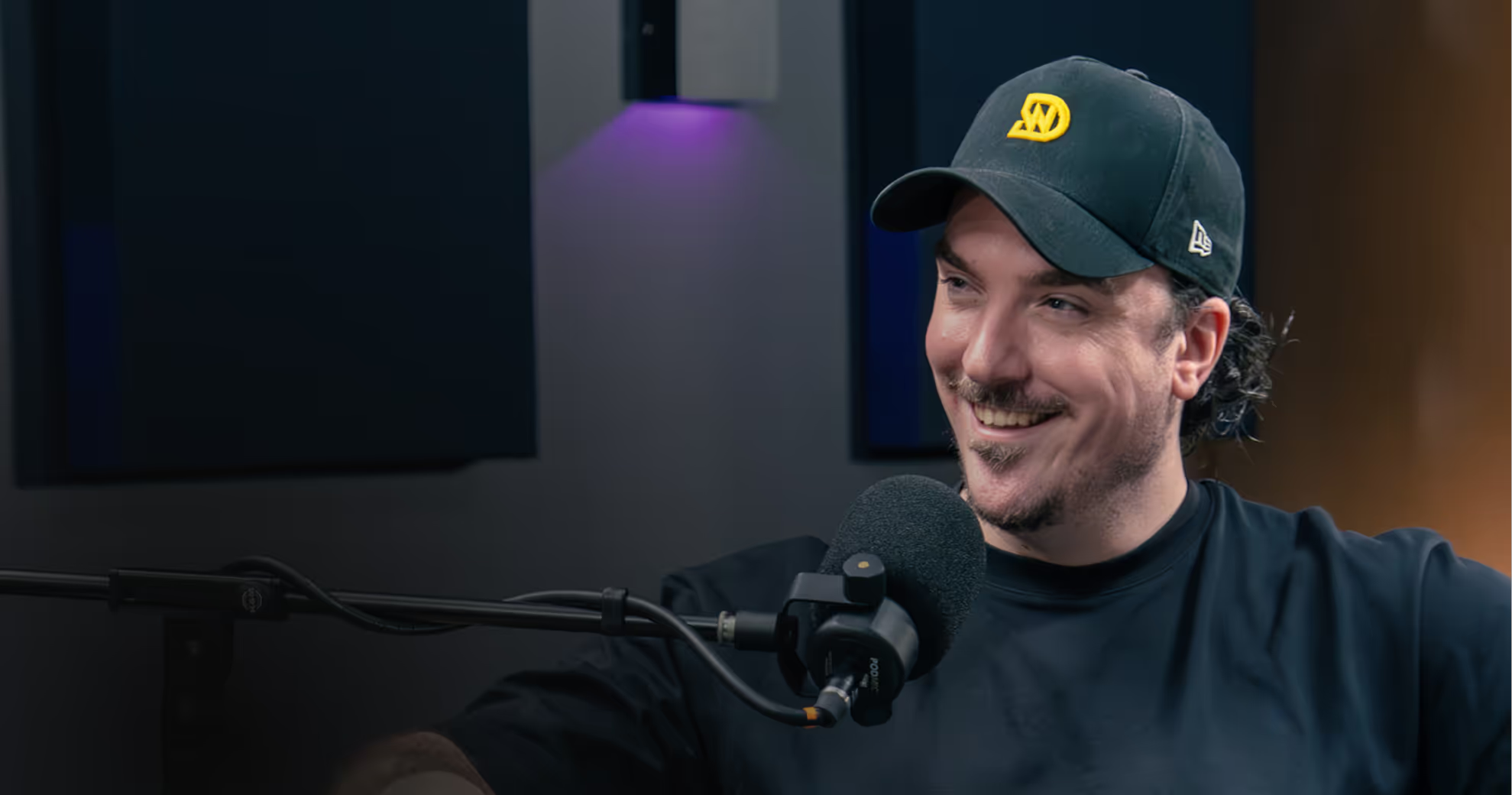
Work With Me
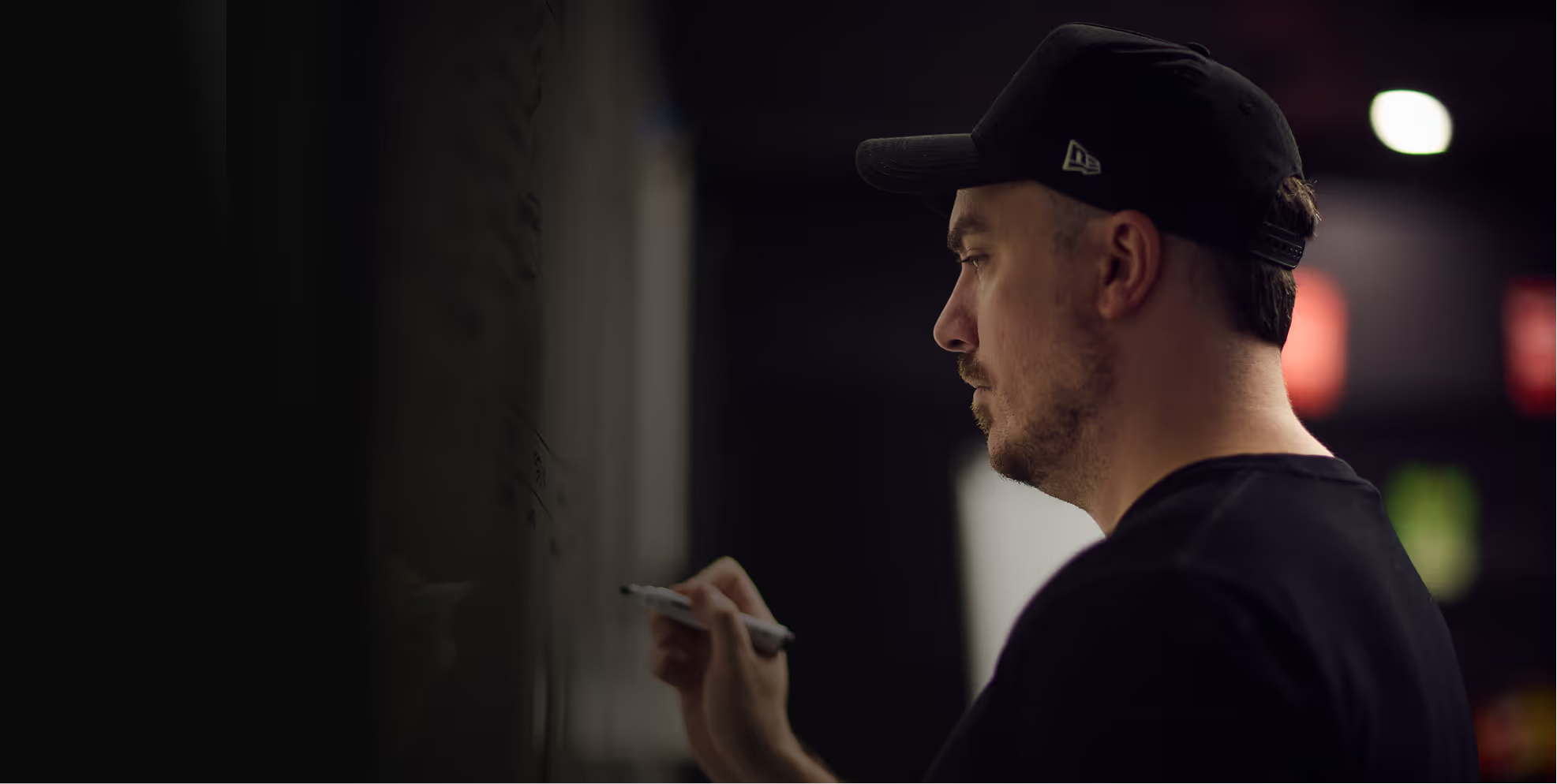
Enquire With Dain’s Team
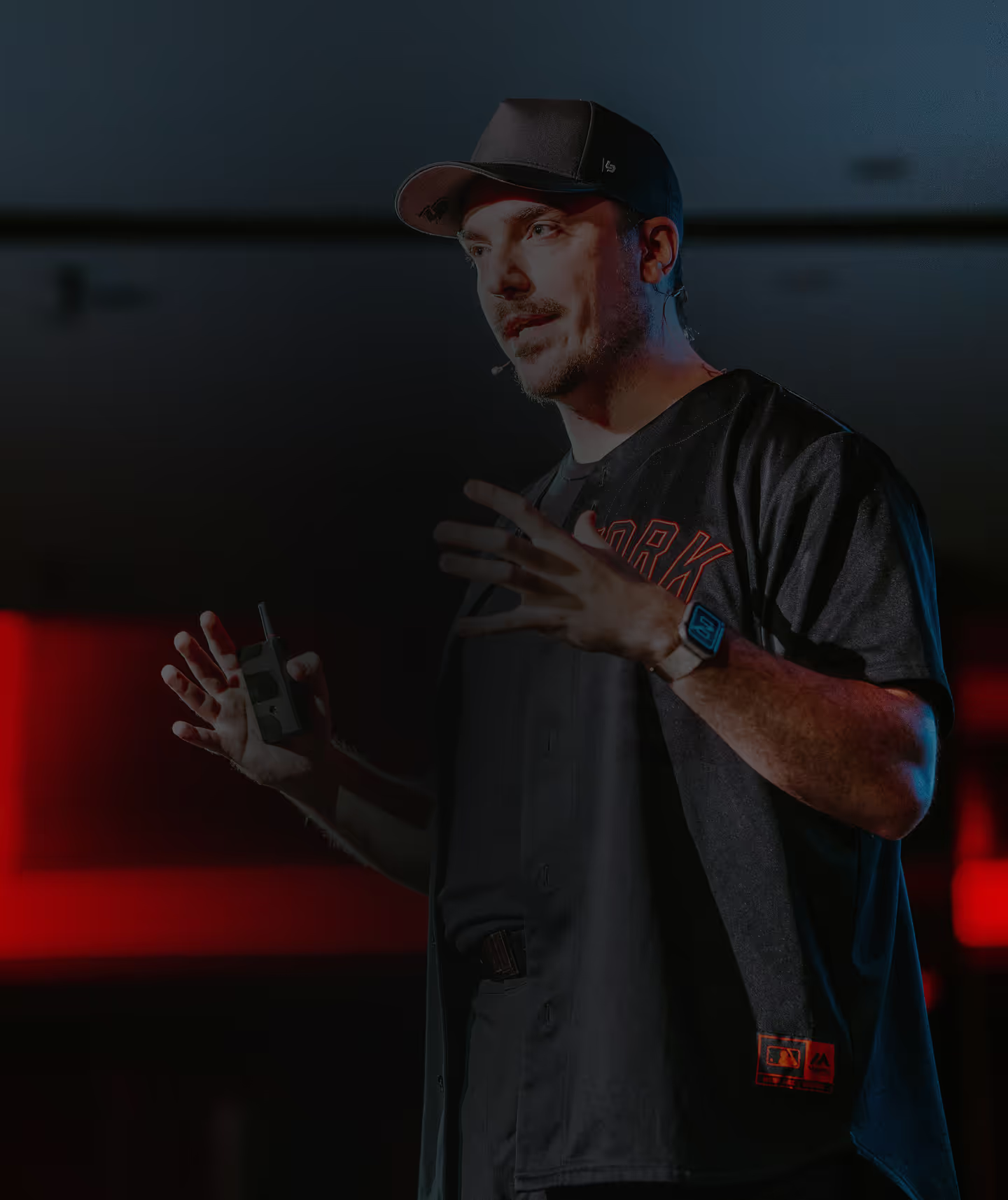
Enquire For Speaking

Let's Get You Branded
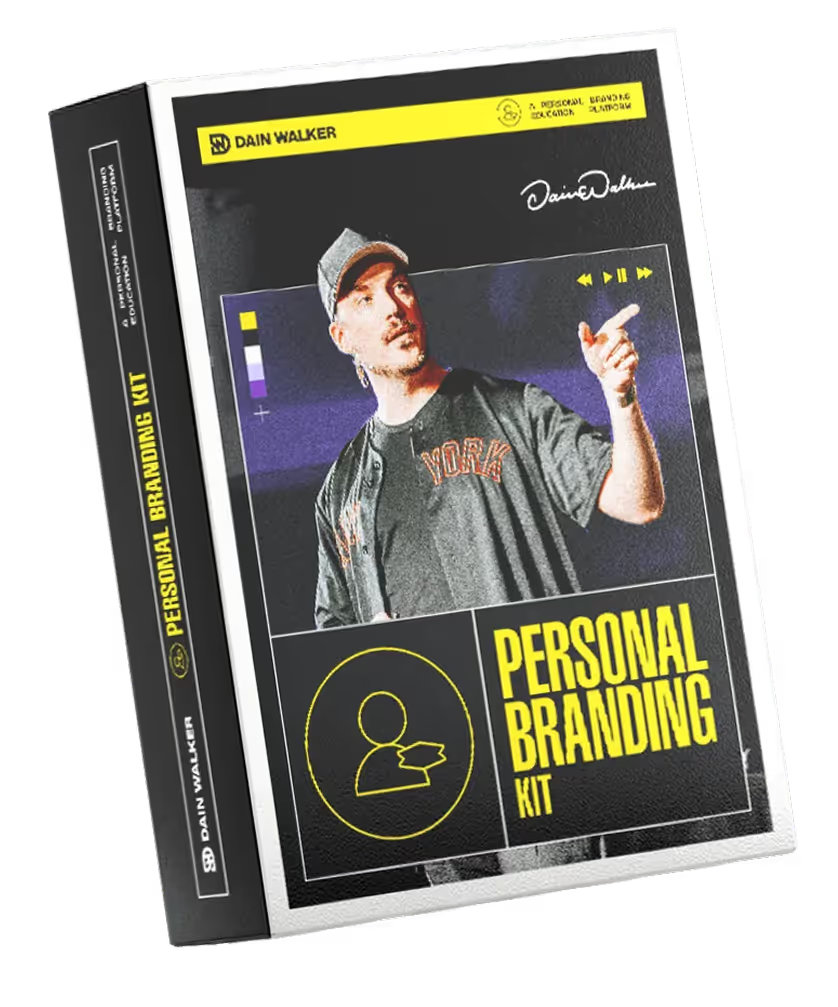
Apply to be a guest
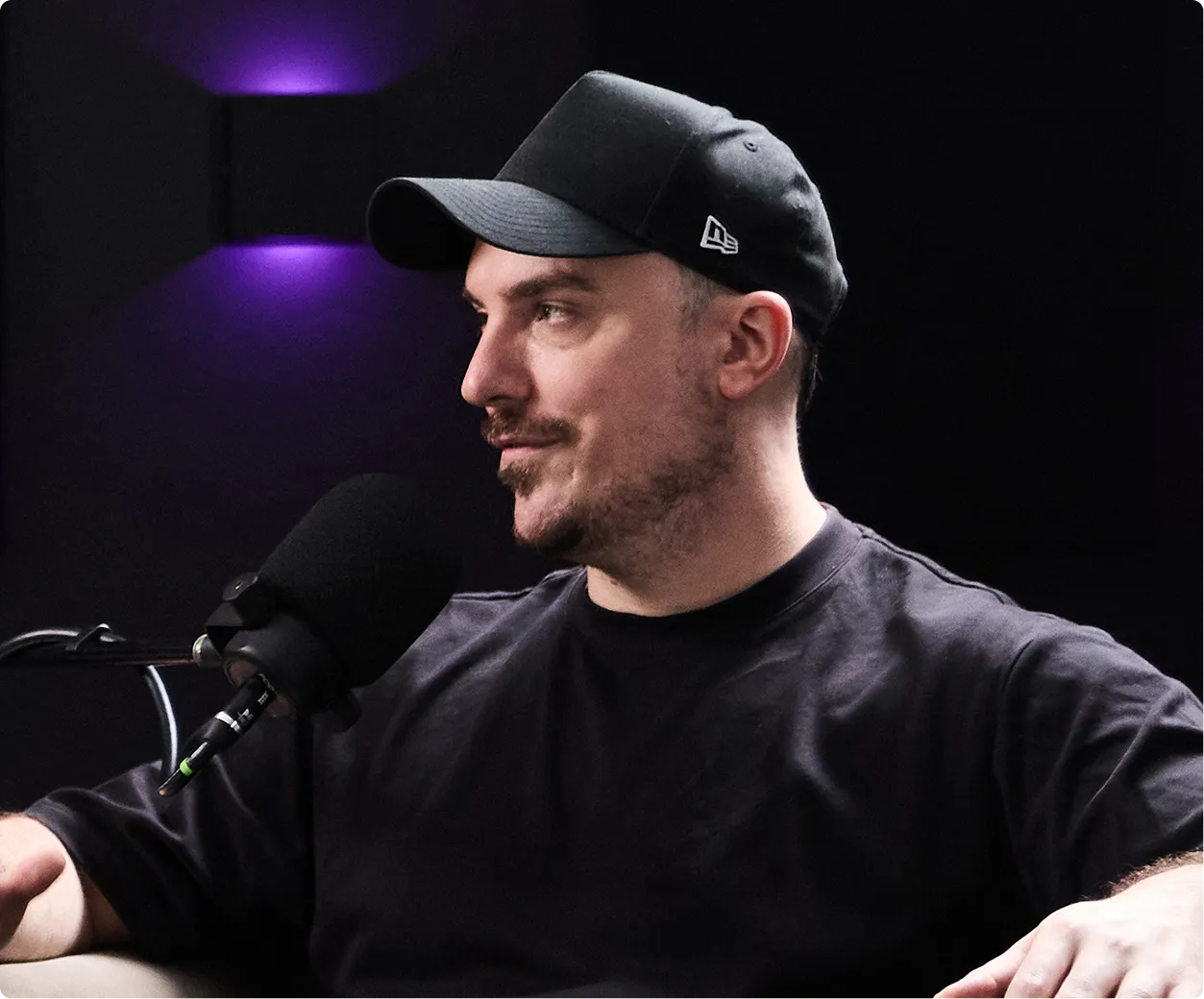
Dive into insights from industry leaders and experts.
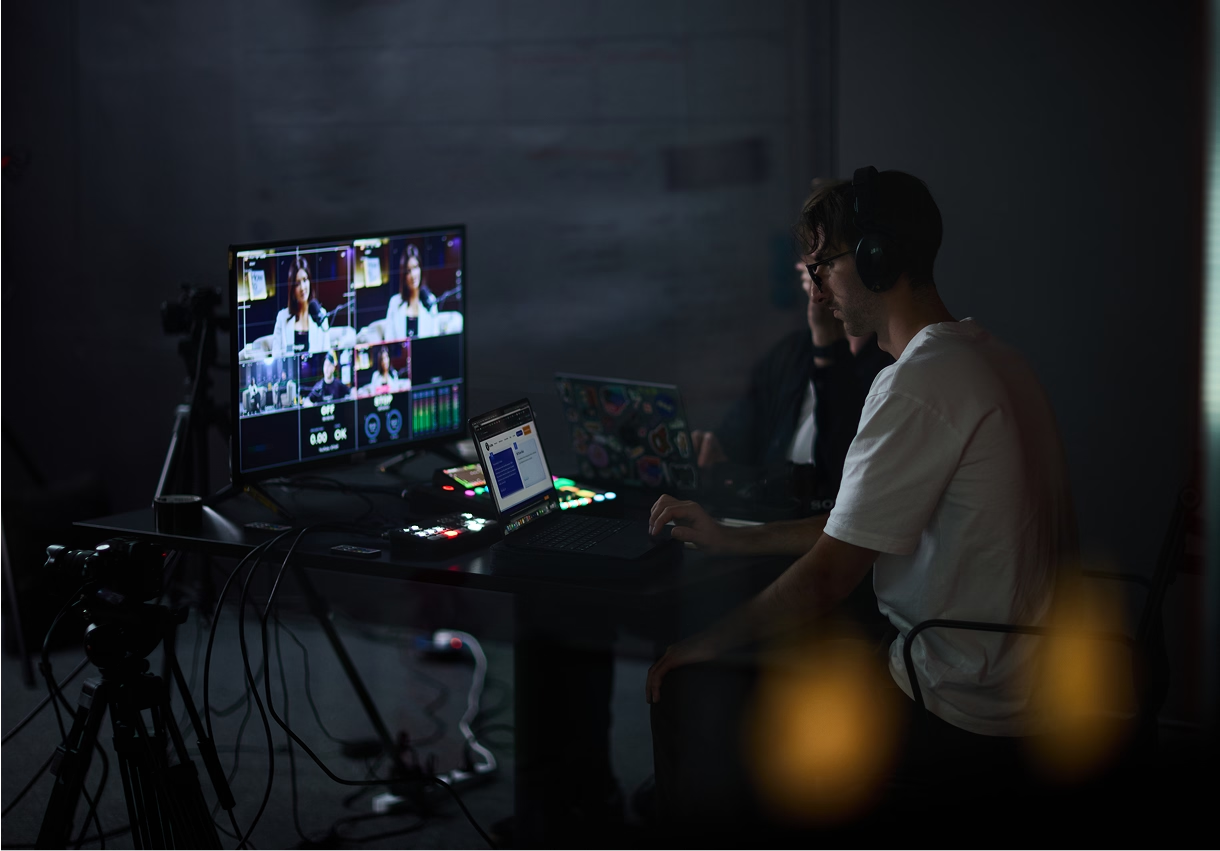
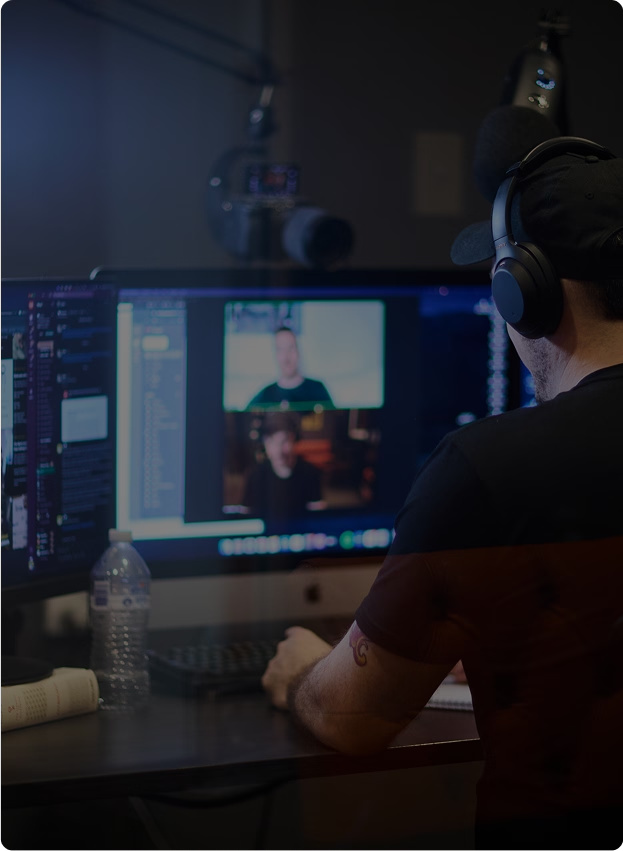
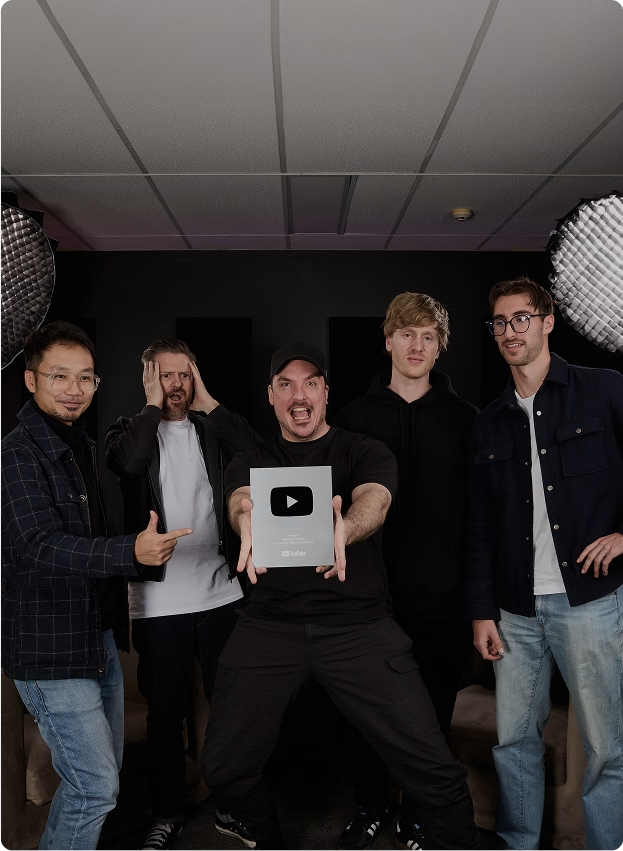
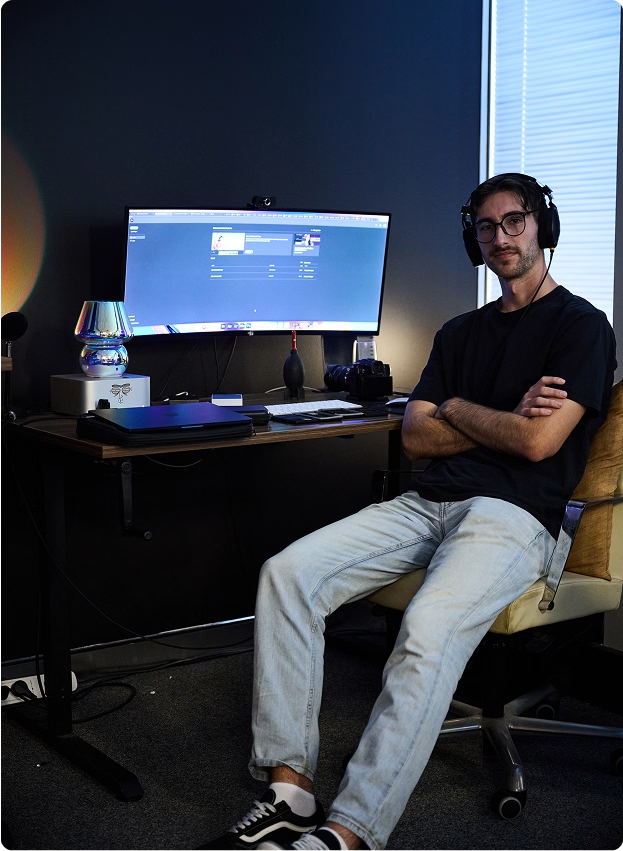
Stream now
Dive into expert advice and industry trends.
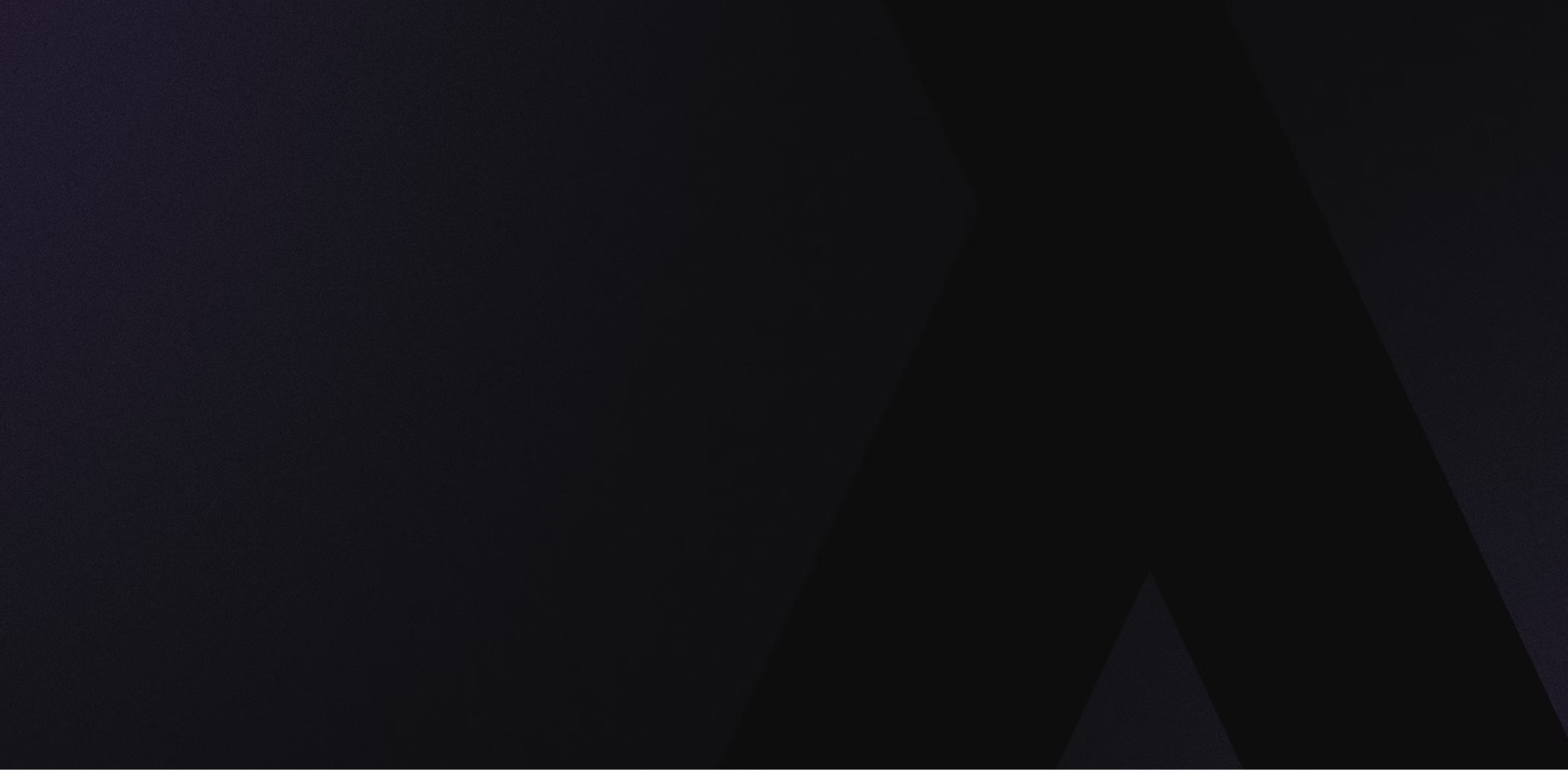

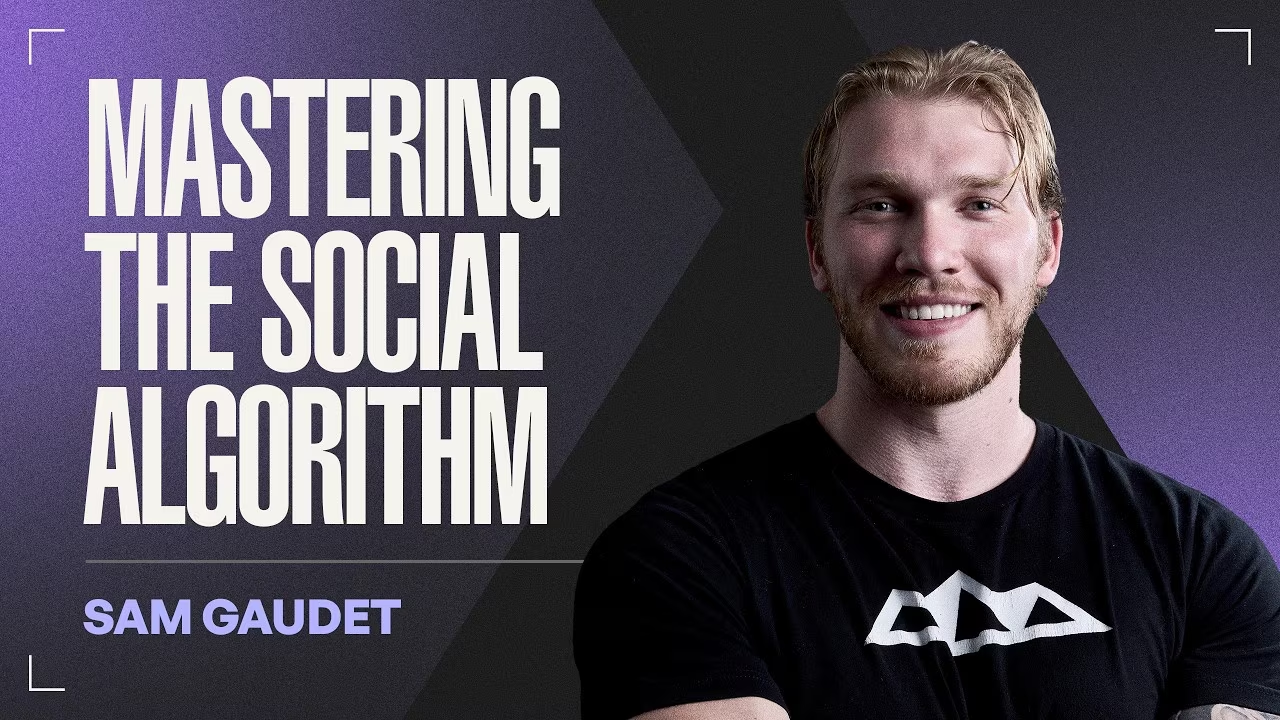
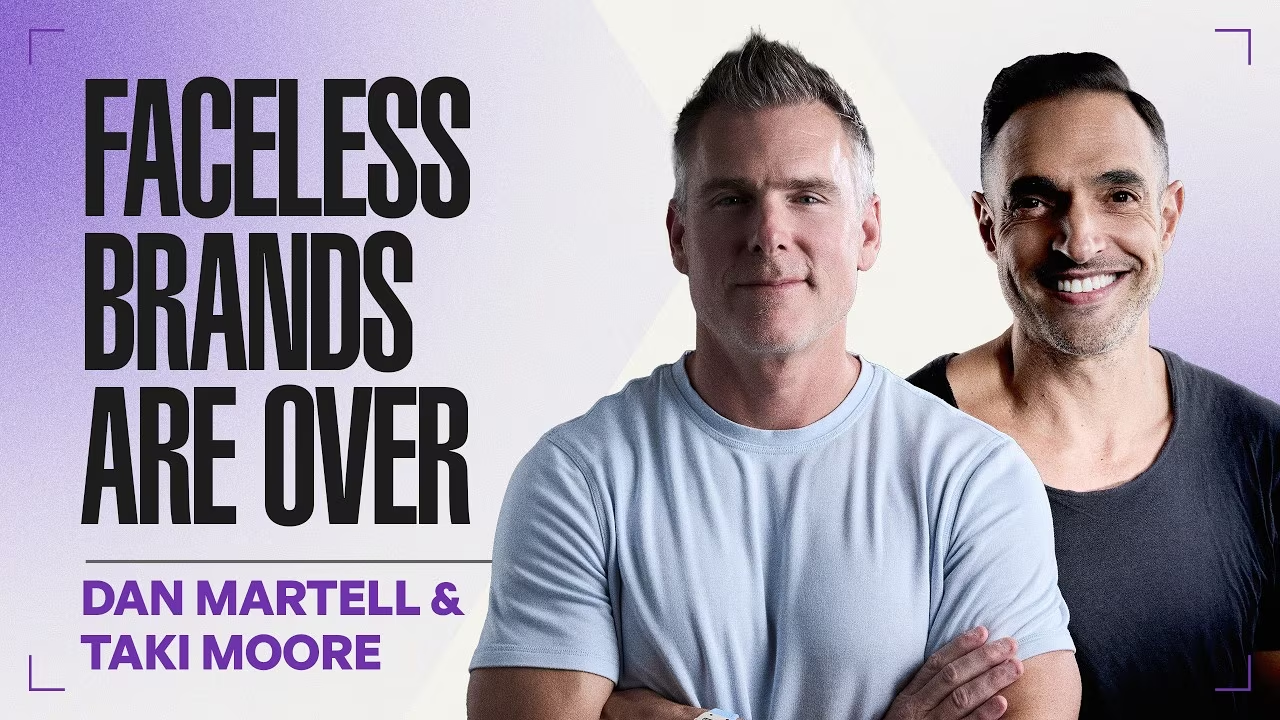
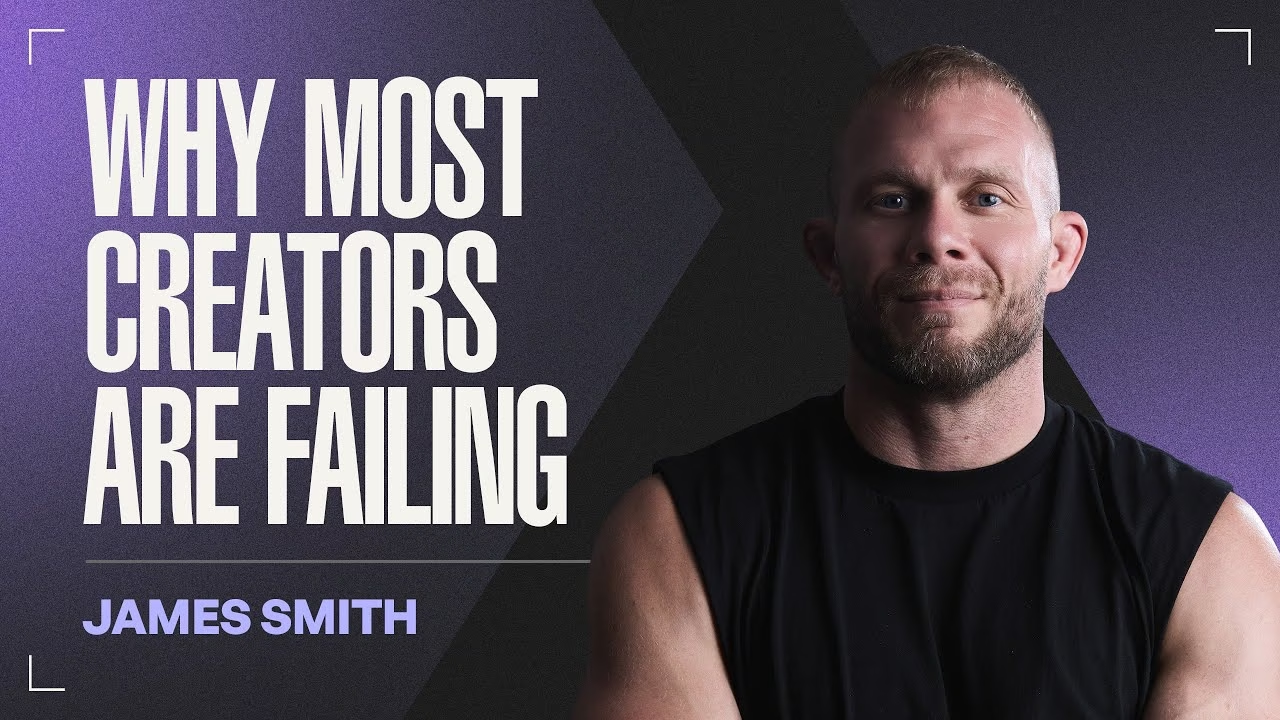
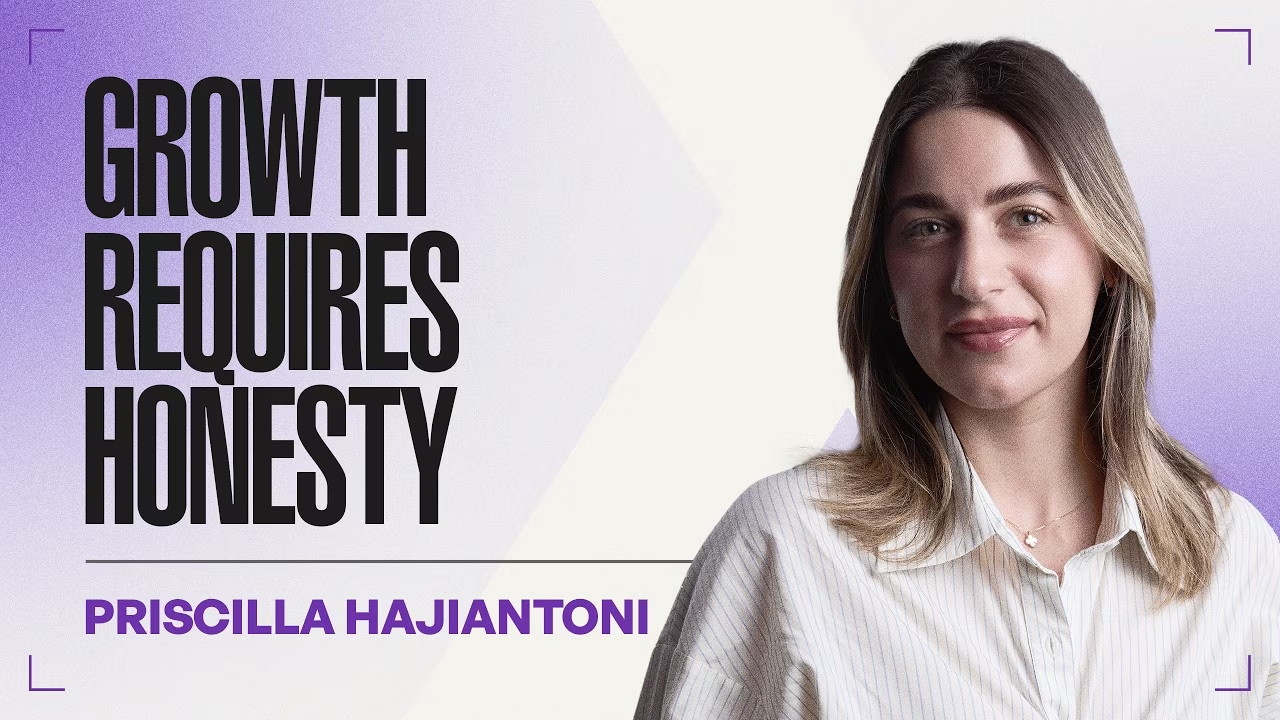
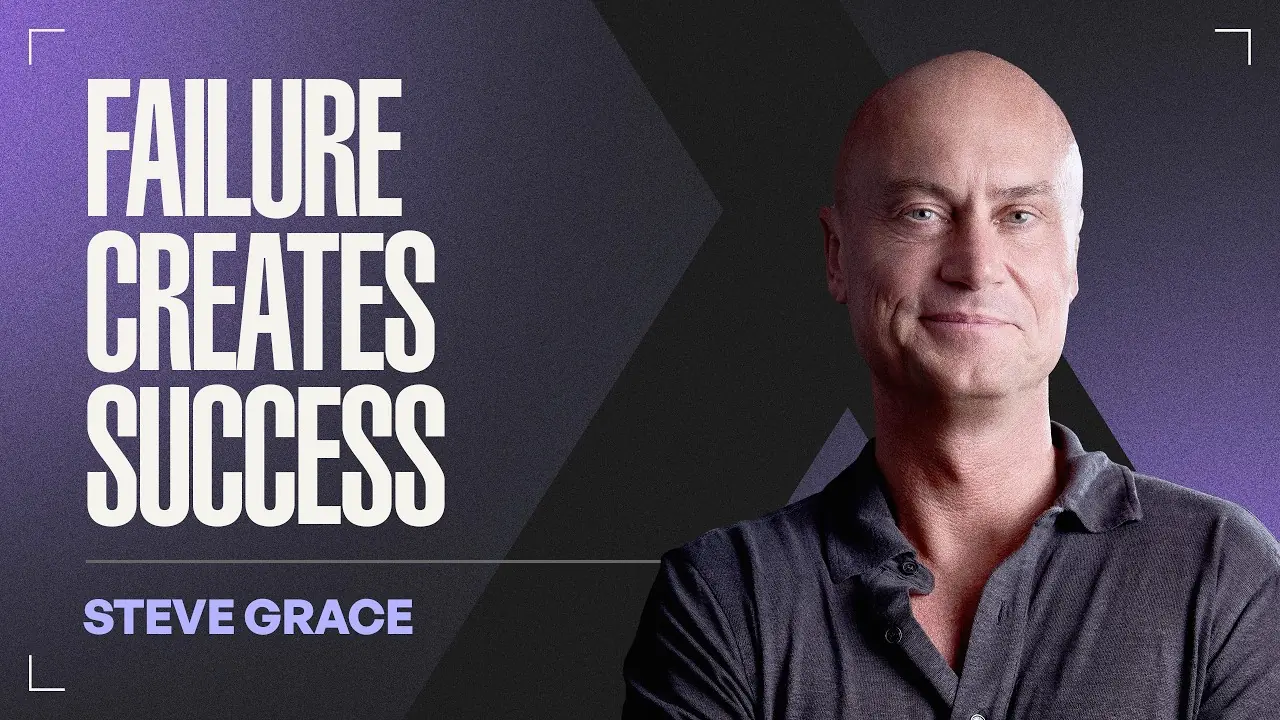
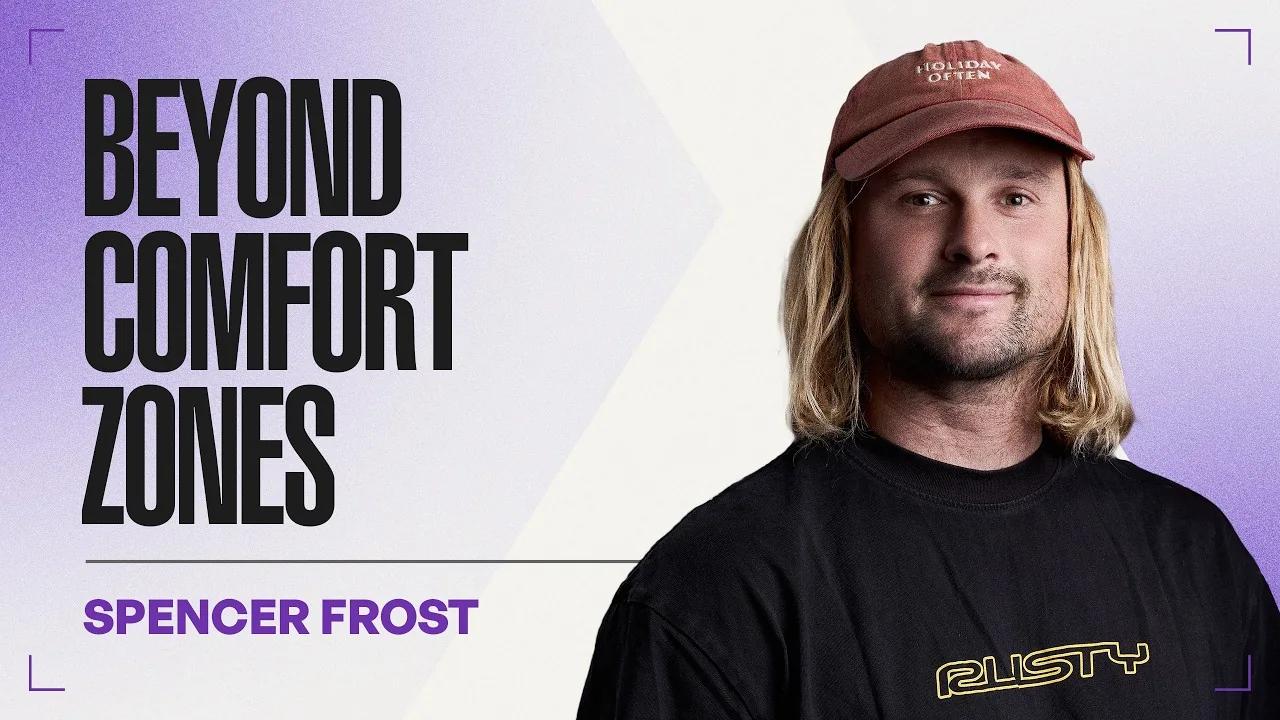
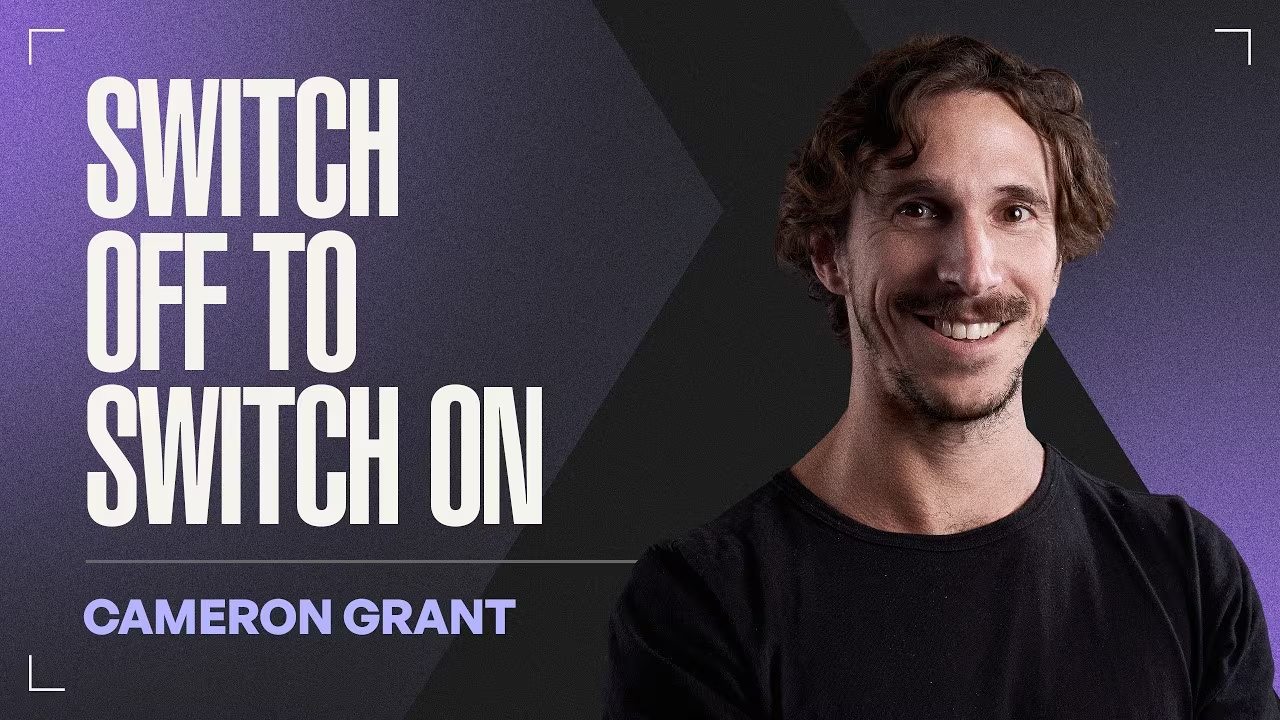
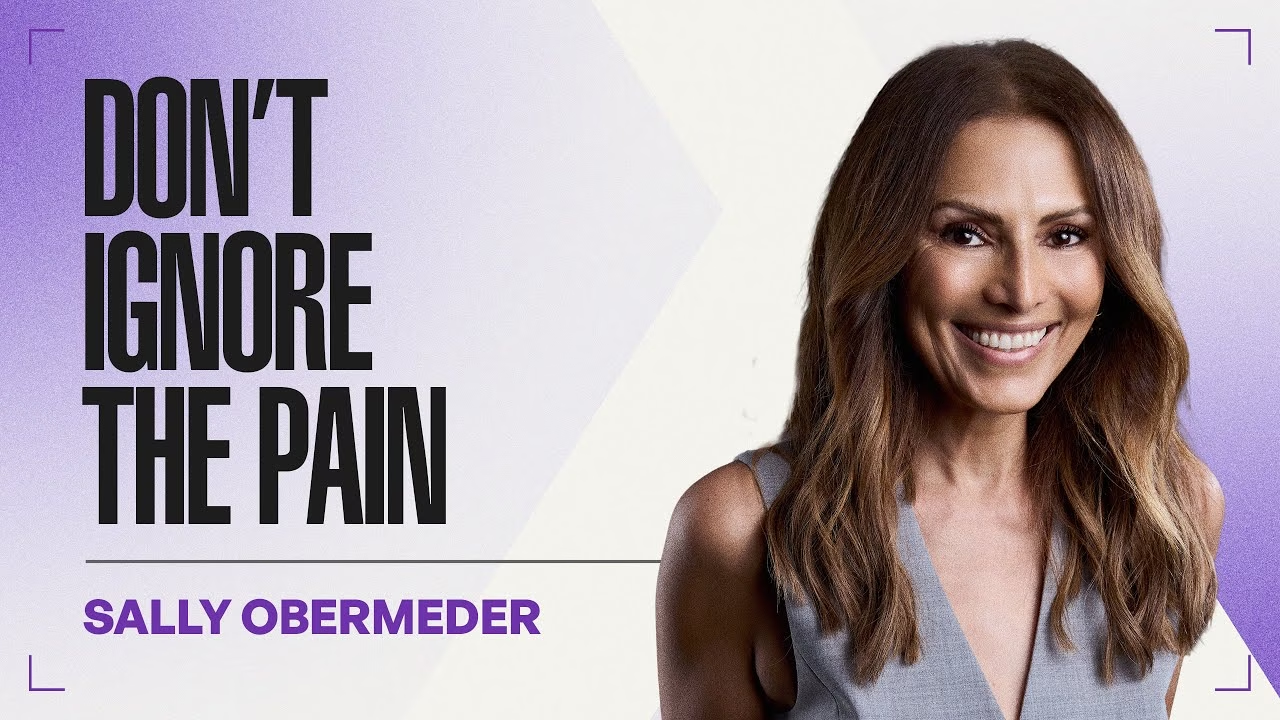
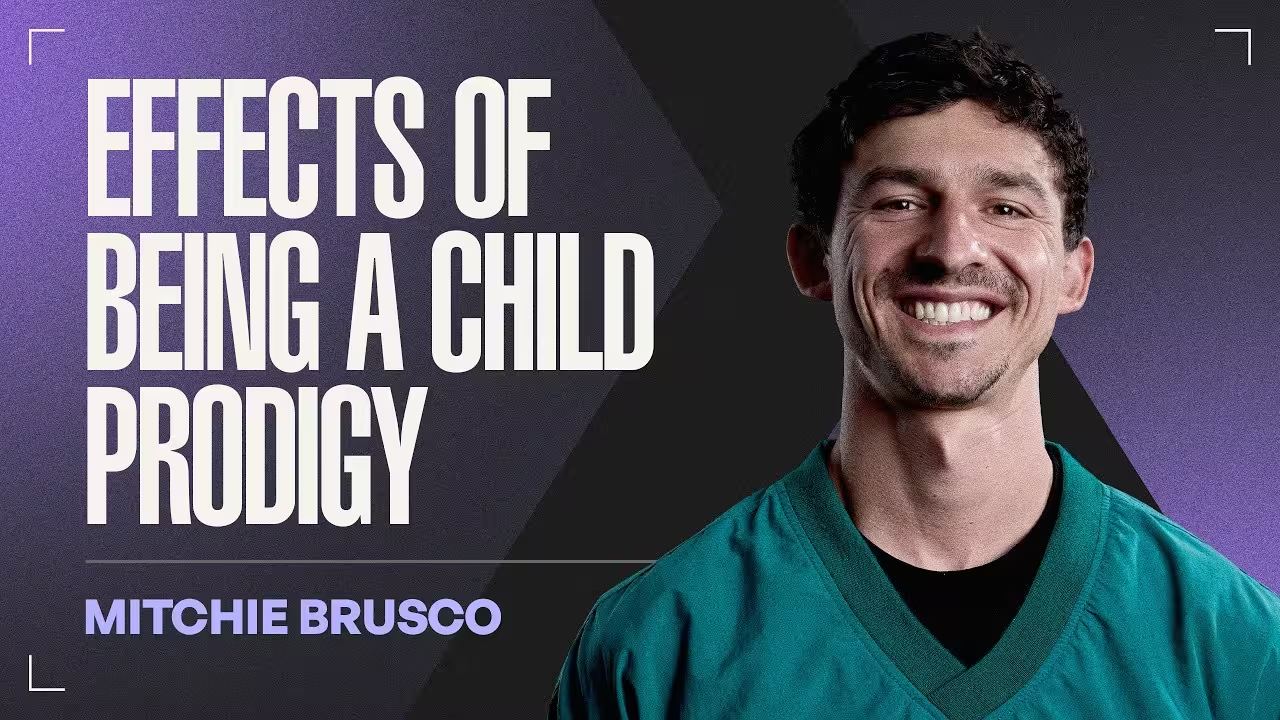
.avif)
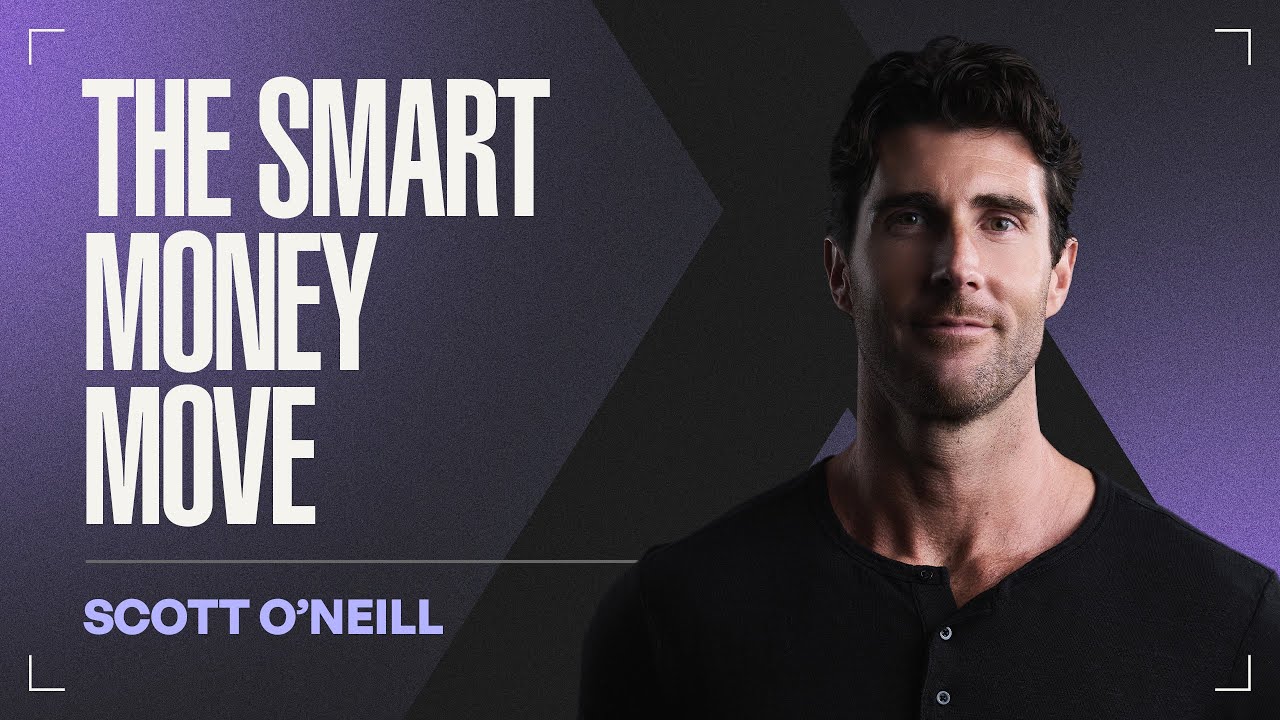
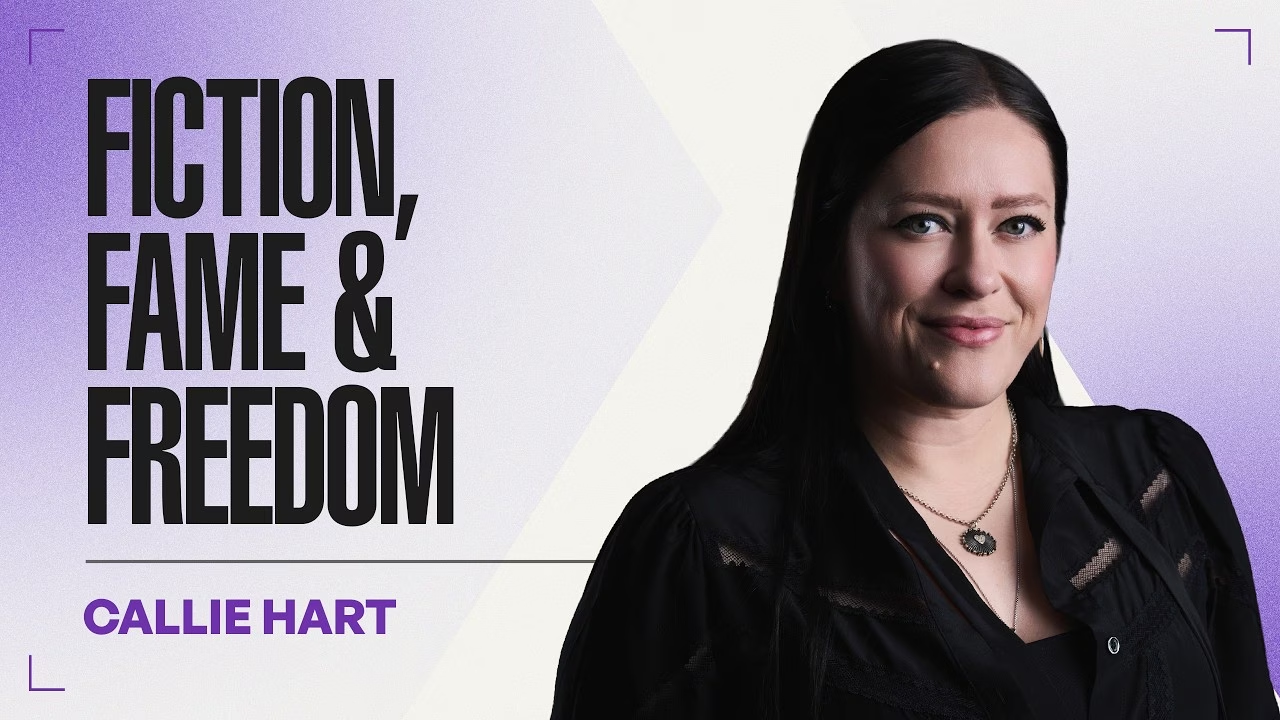

.avif)
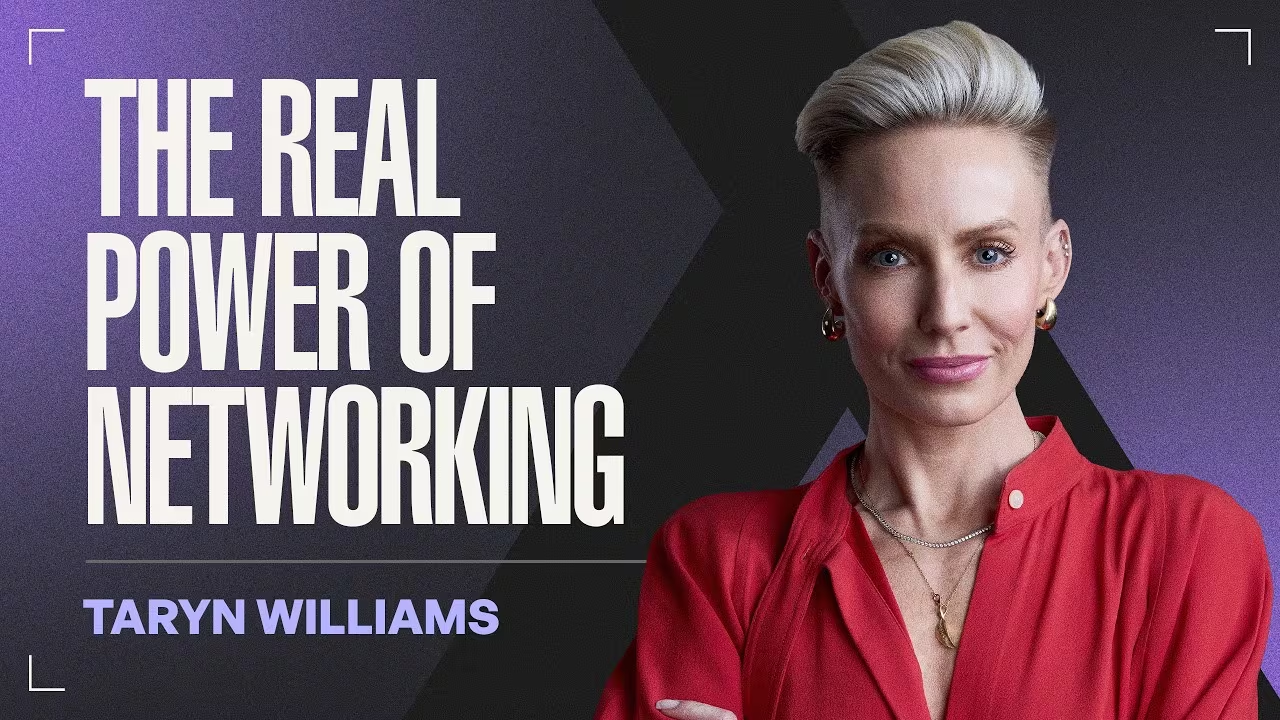

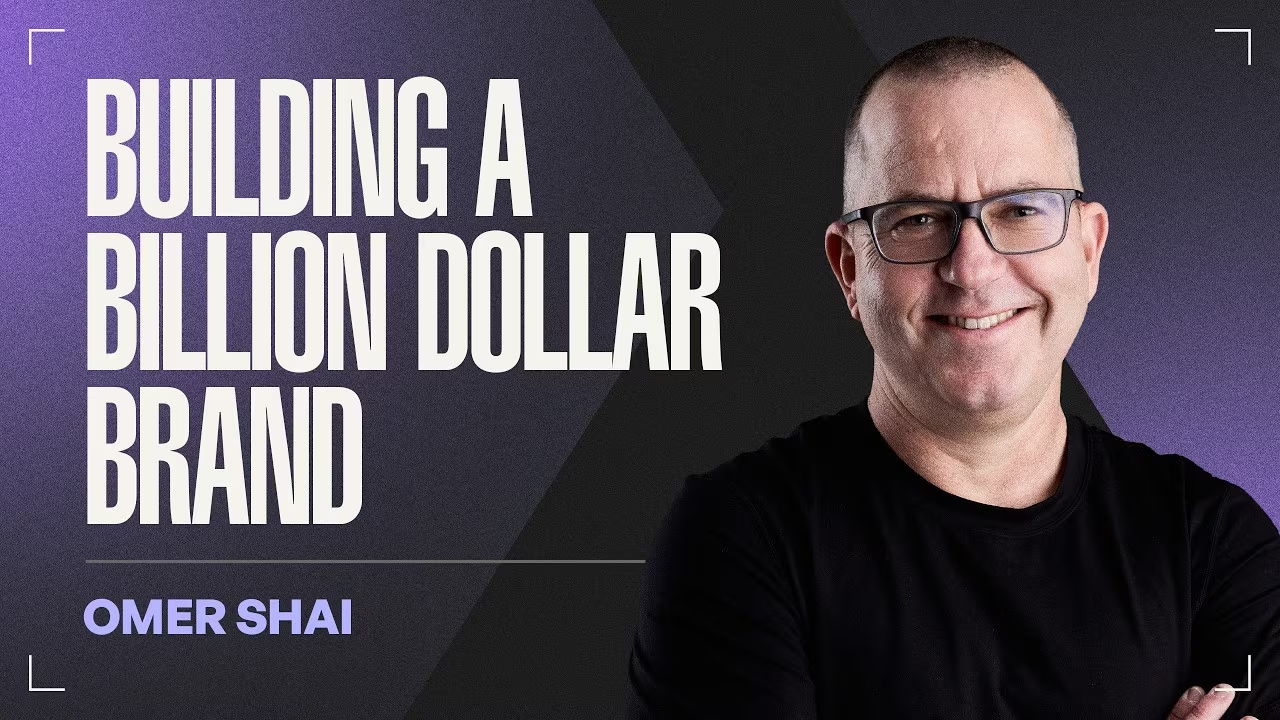
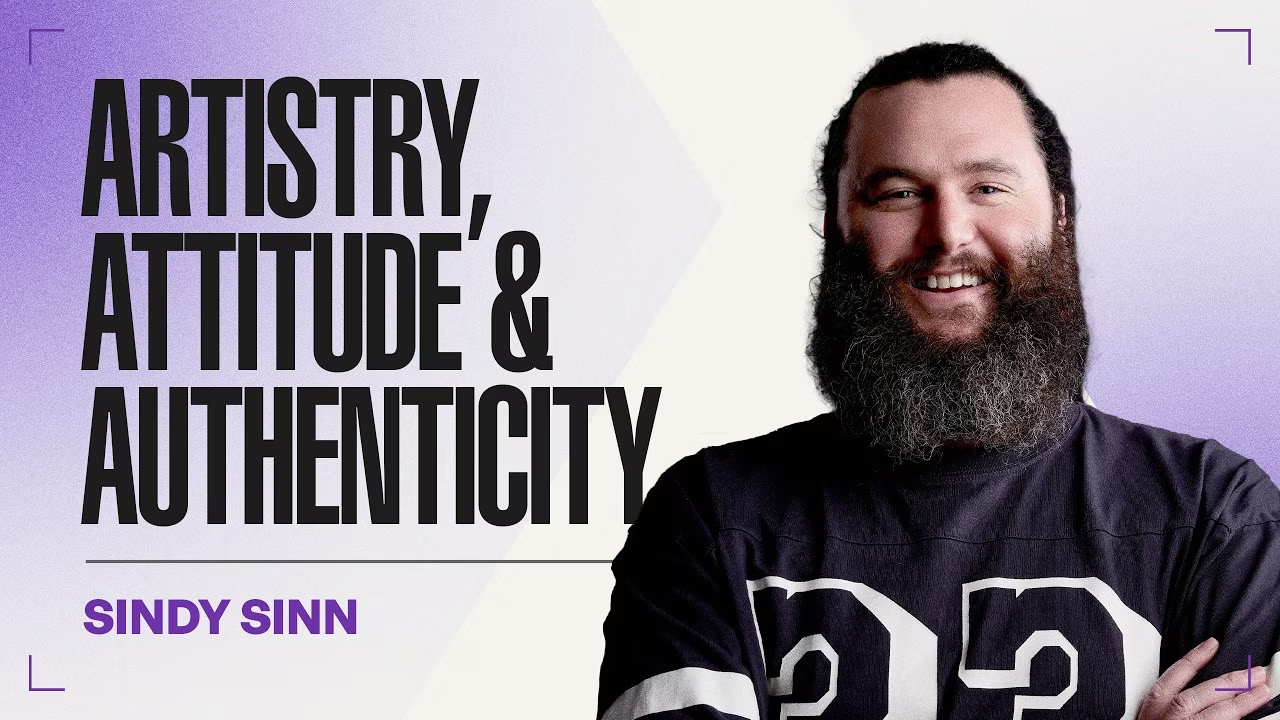
%20(1).avif)

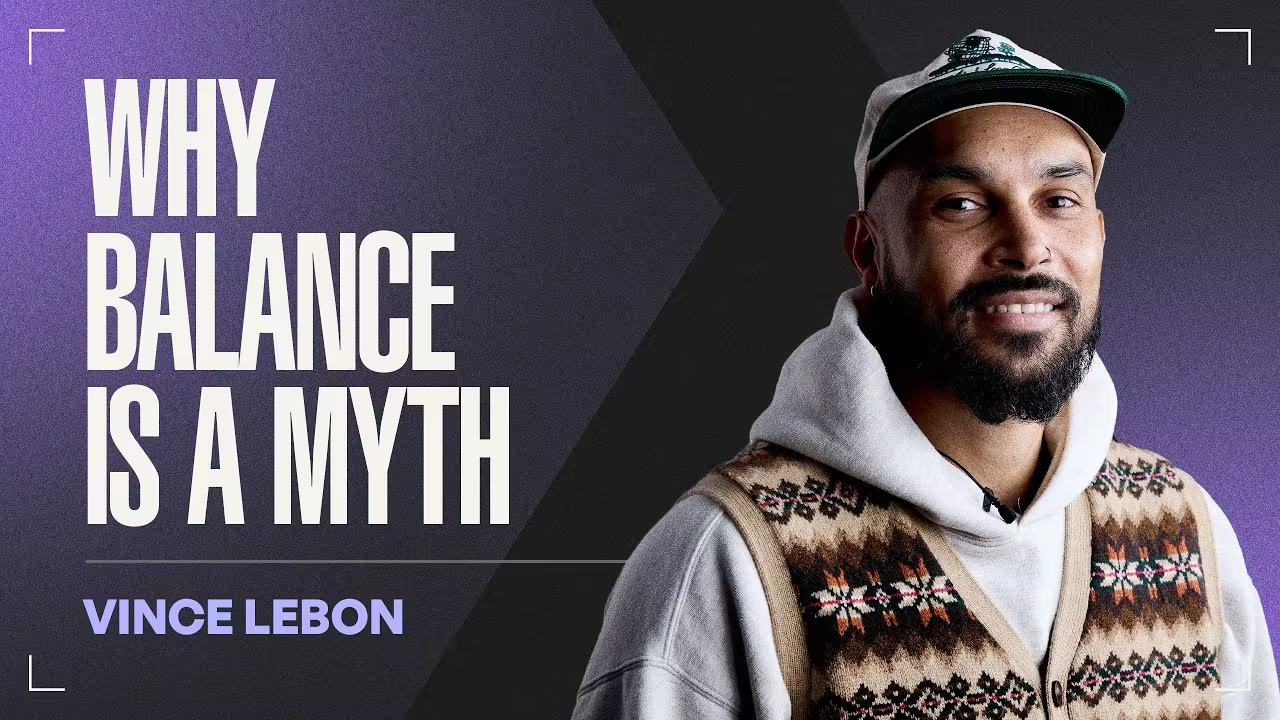
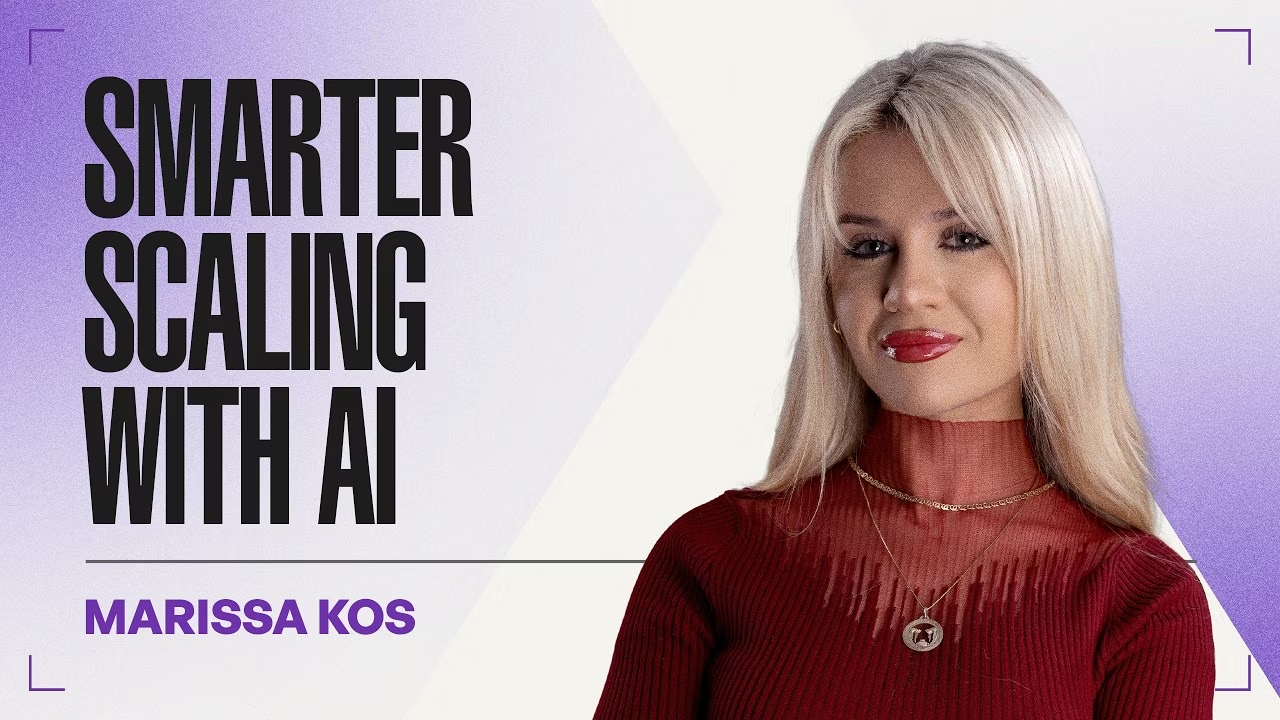
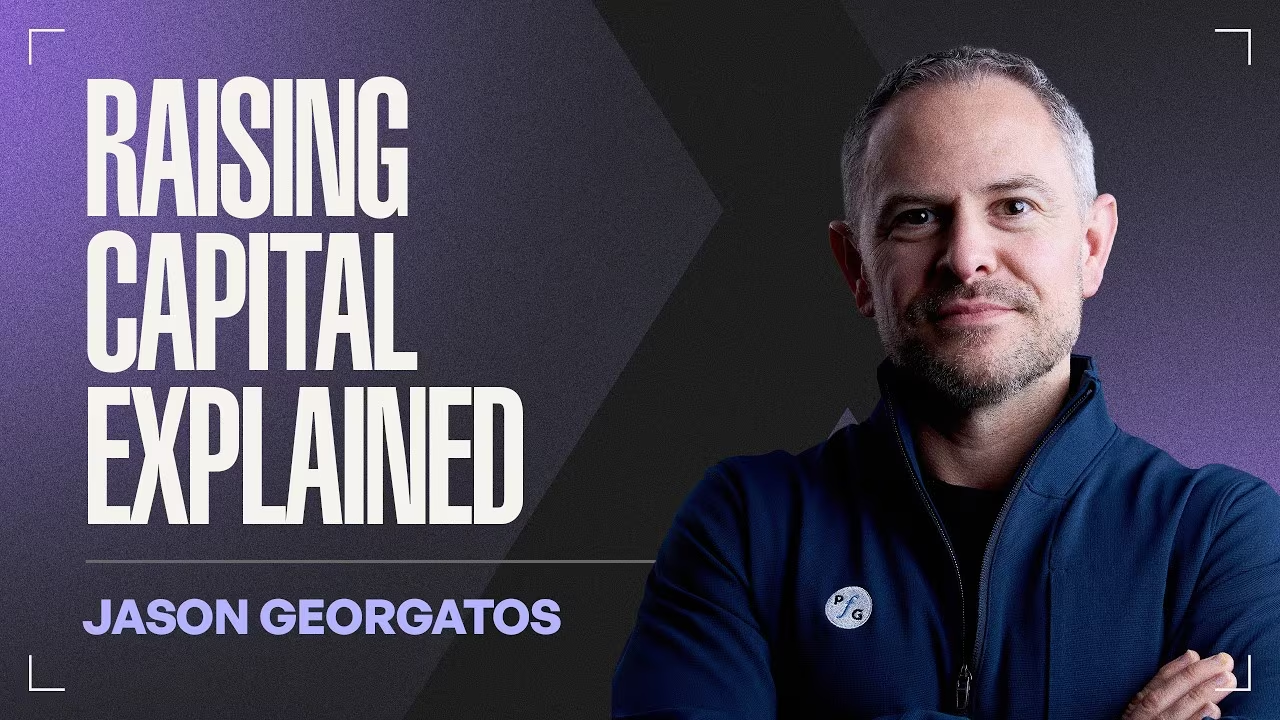
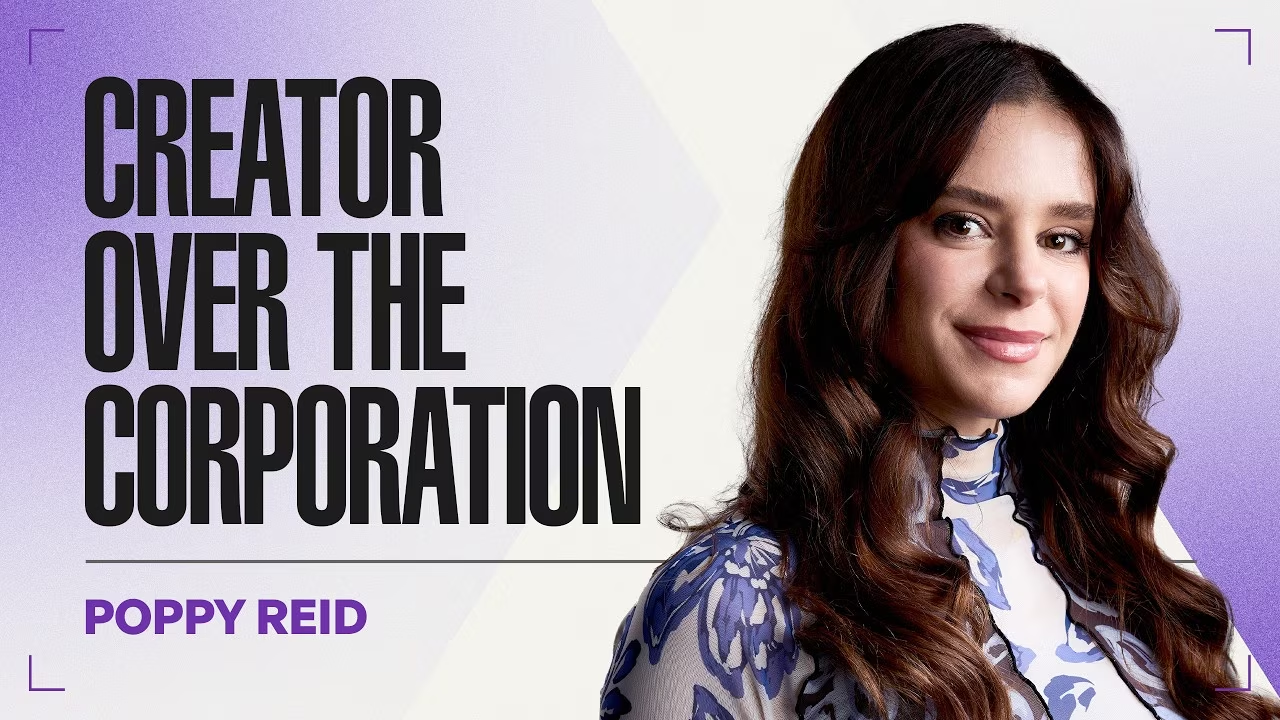
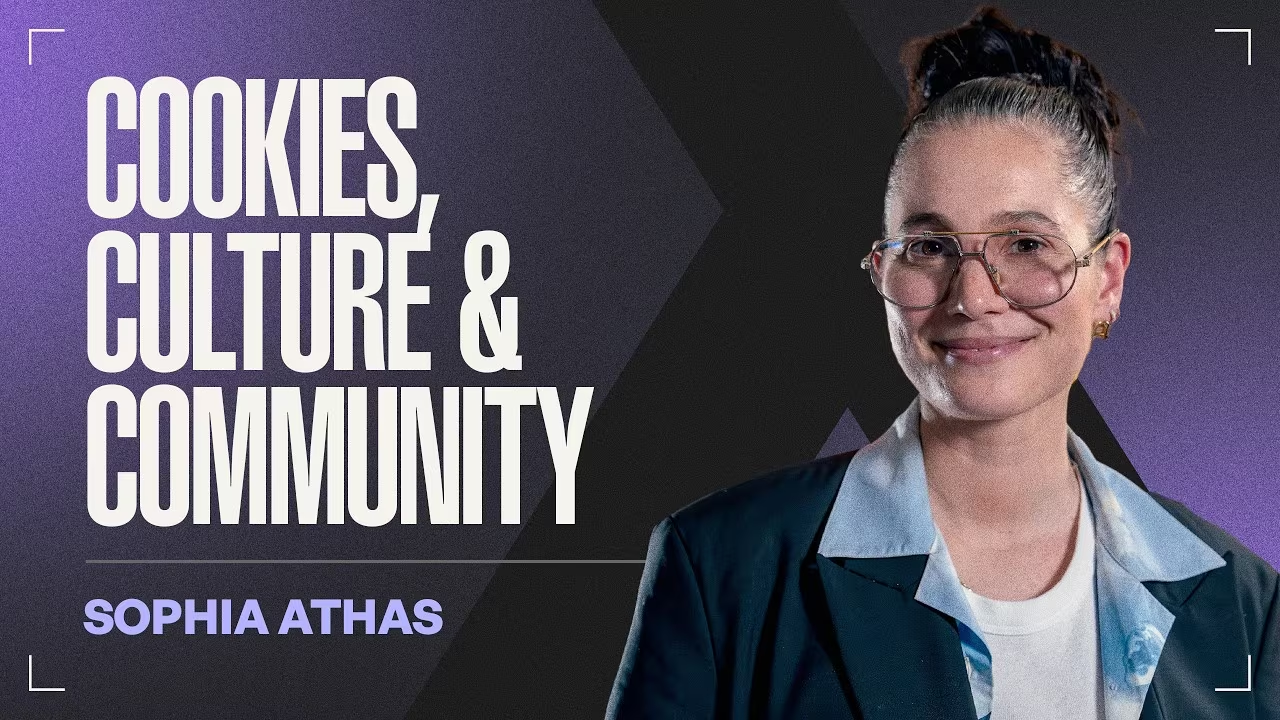

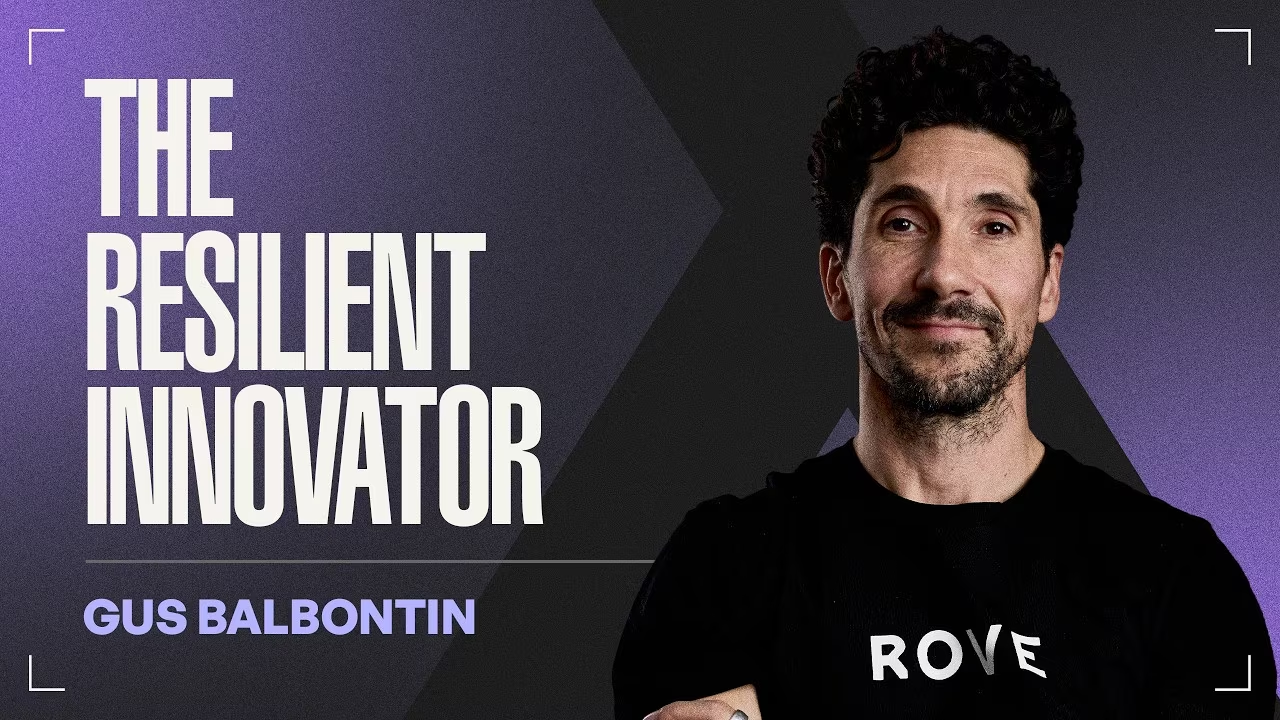
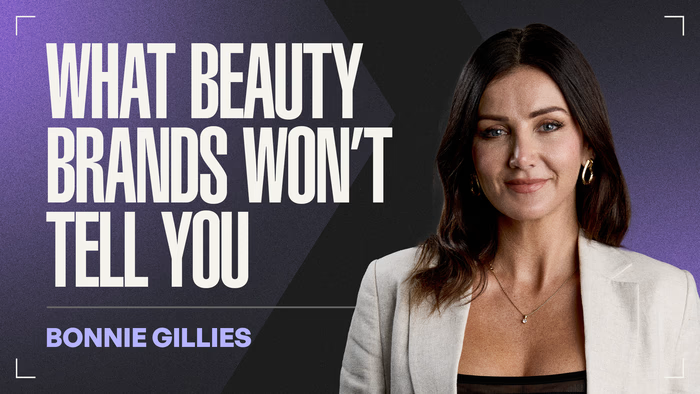

.avif)

